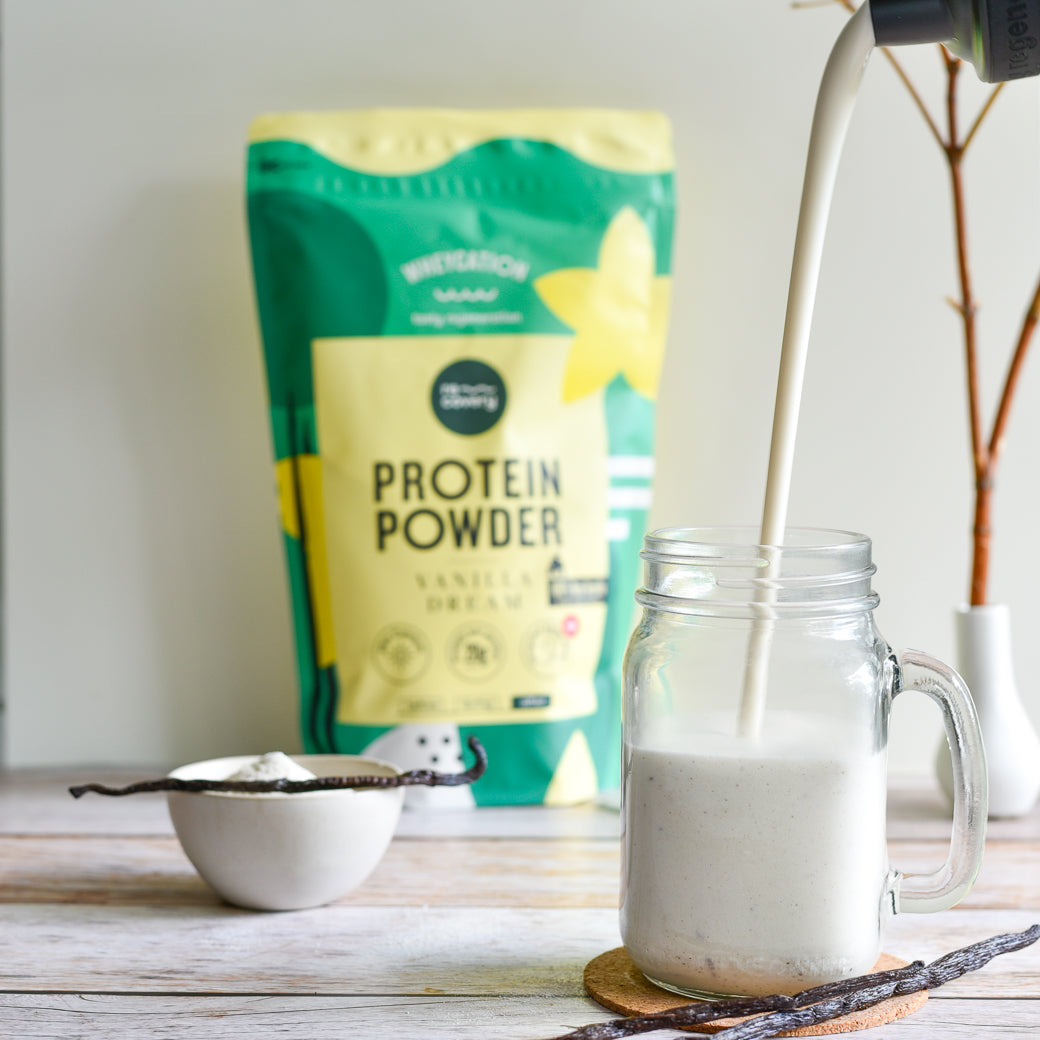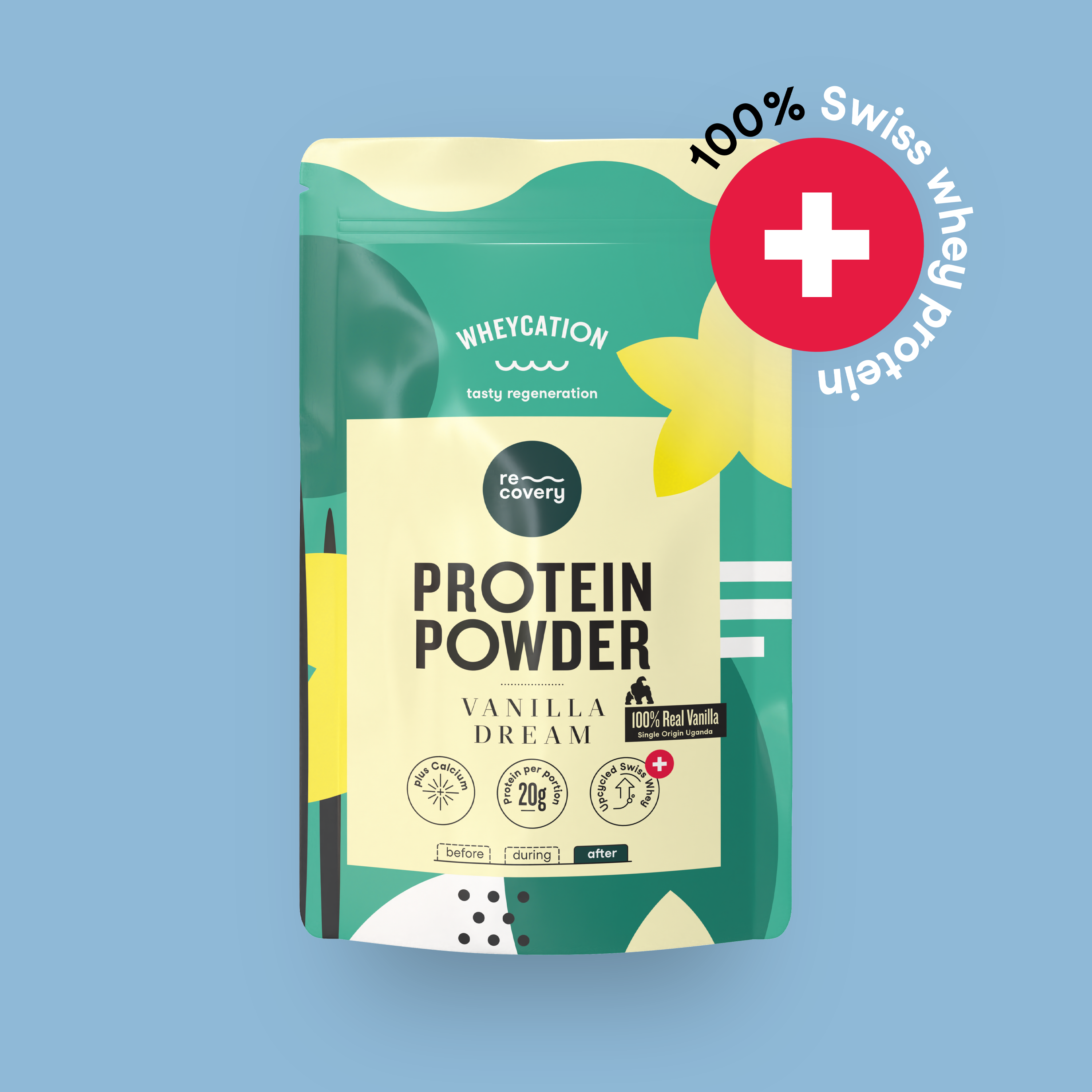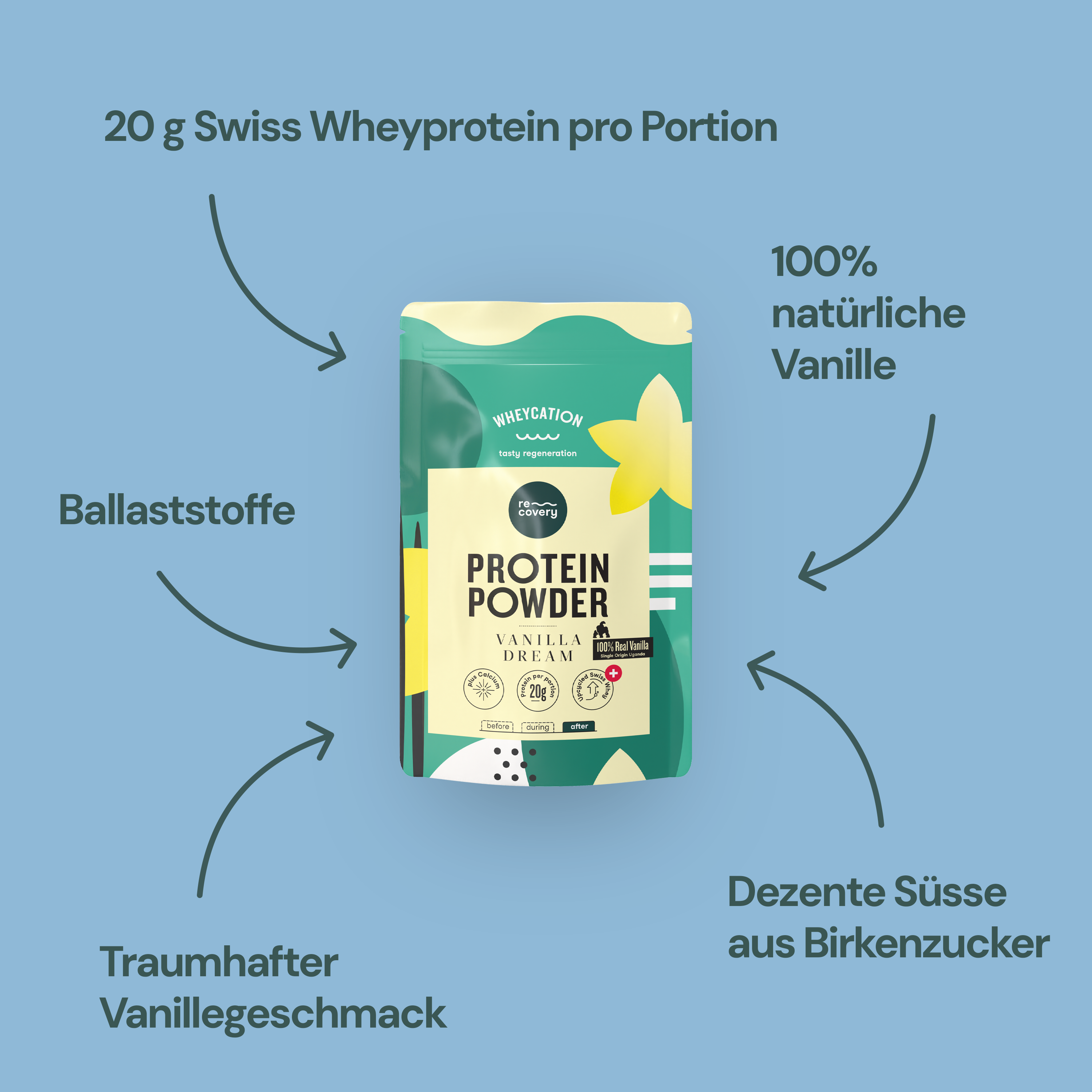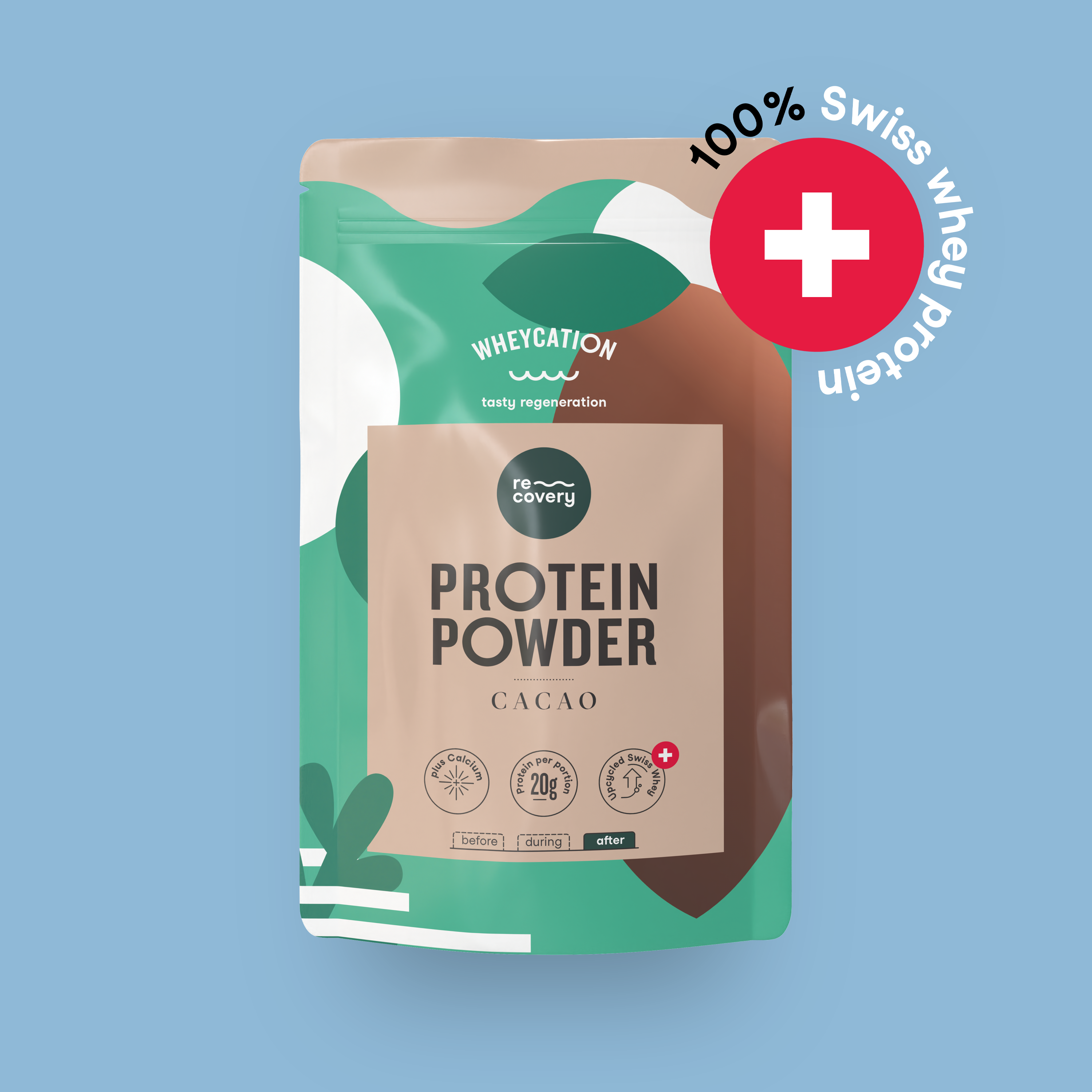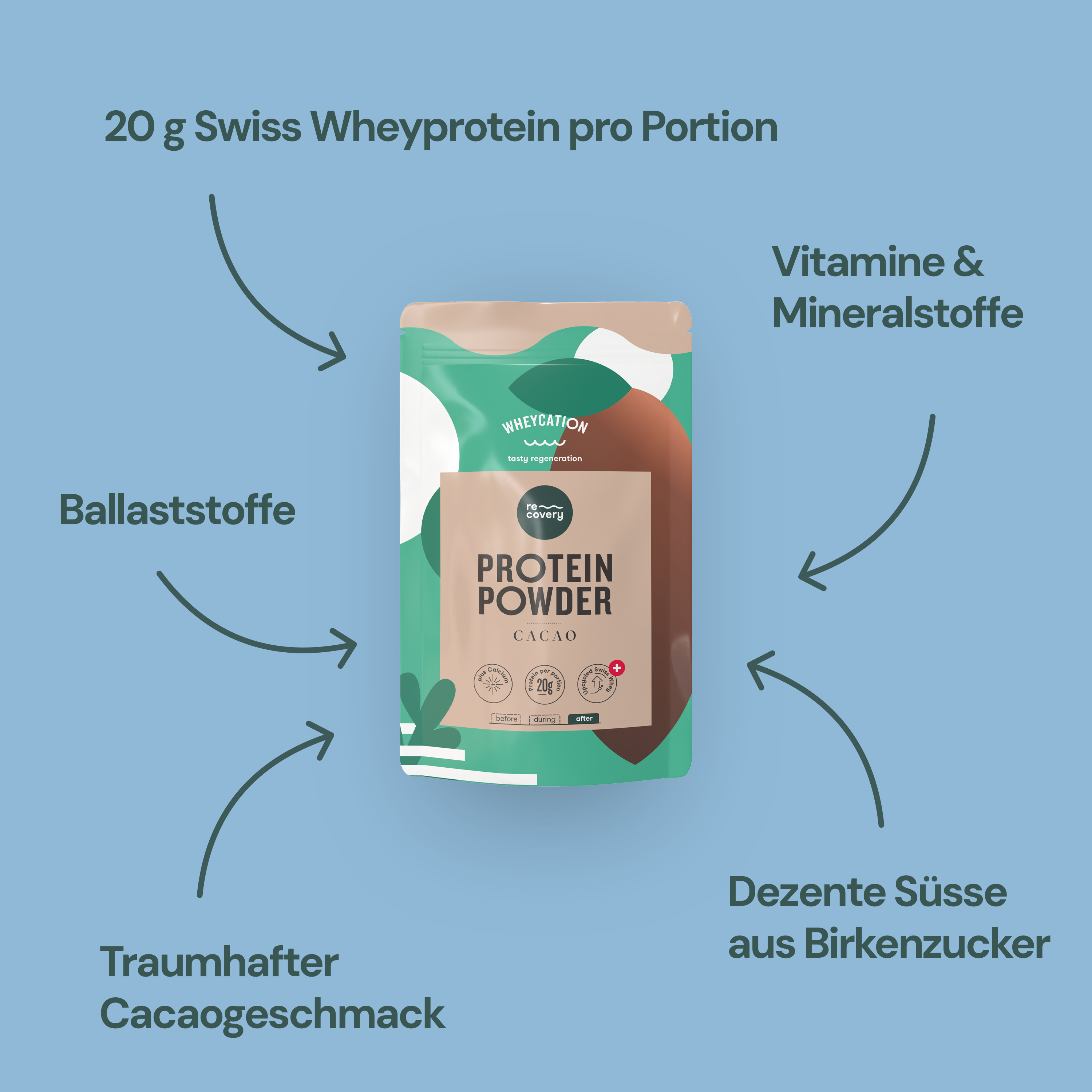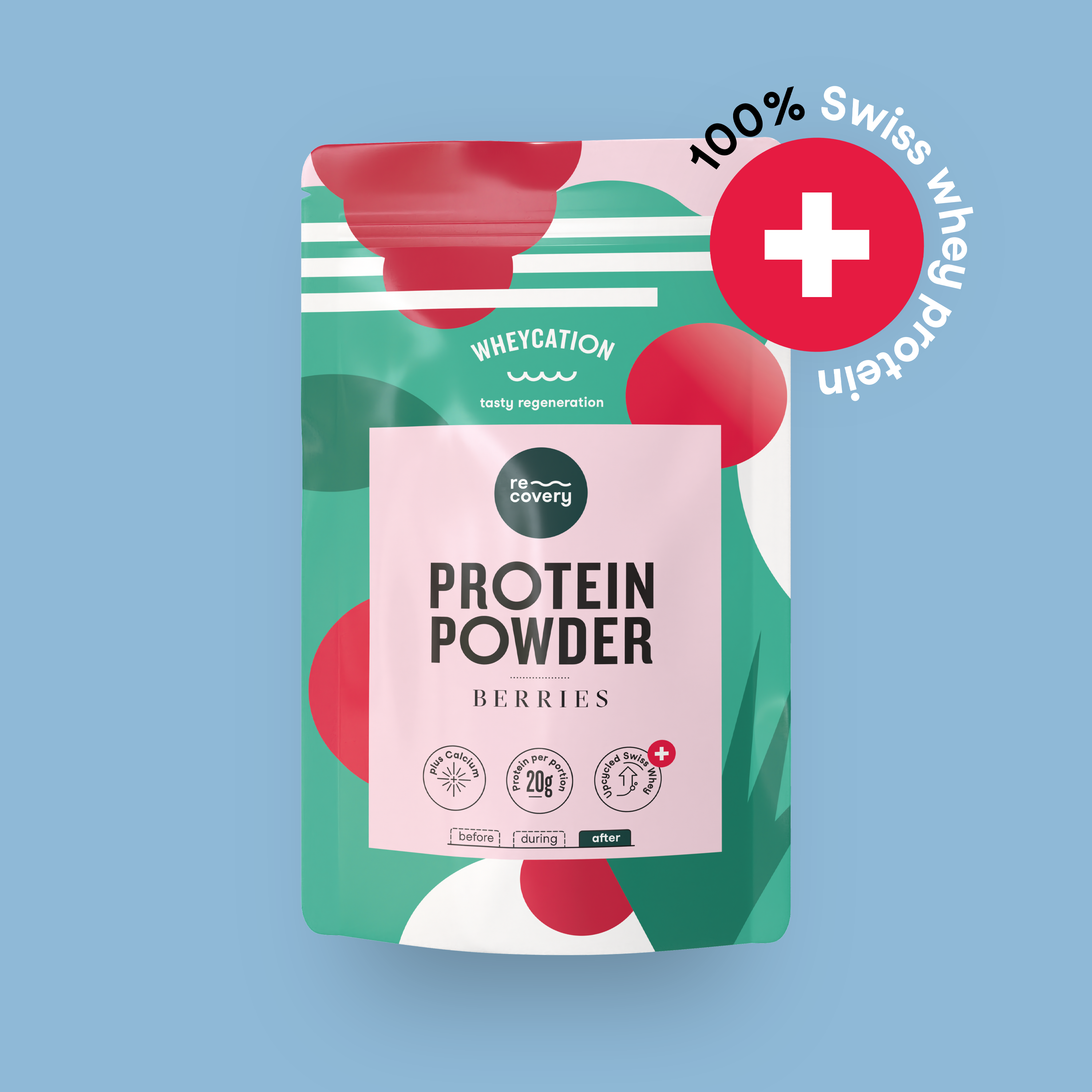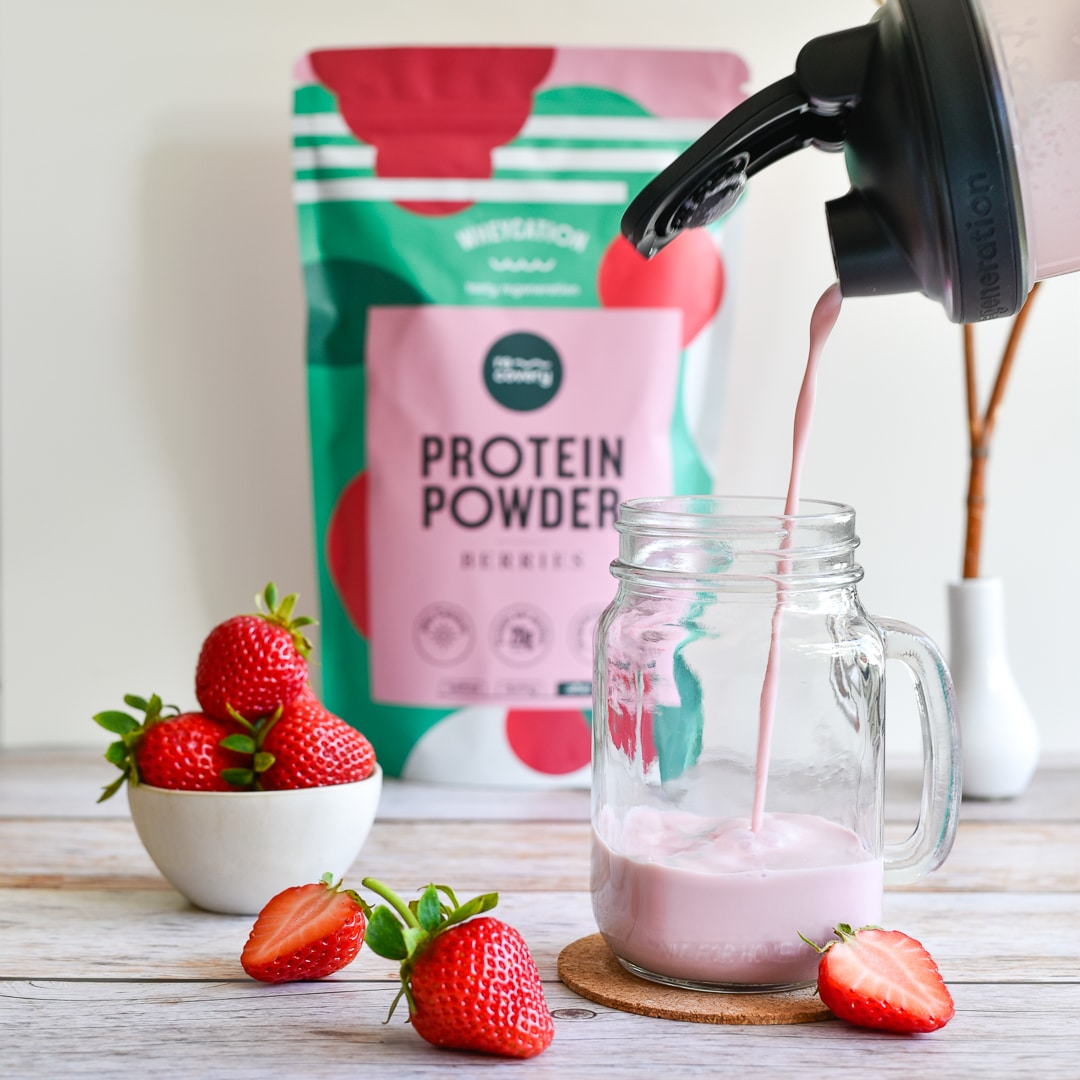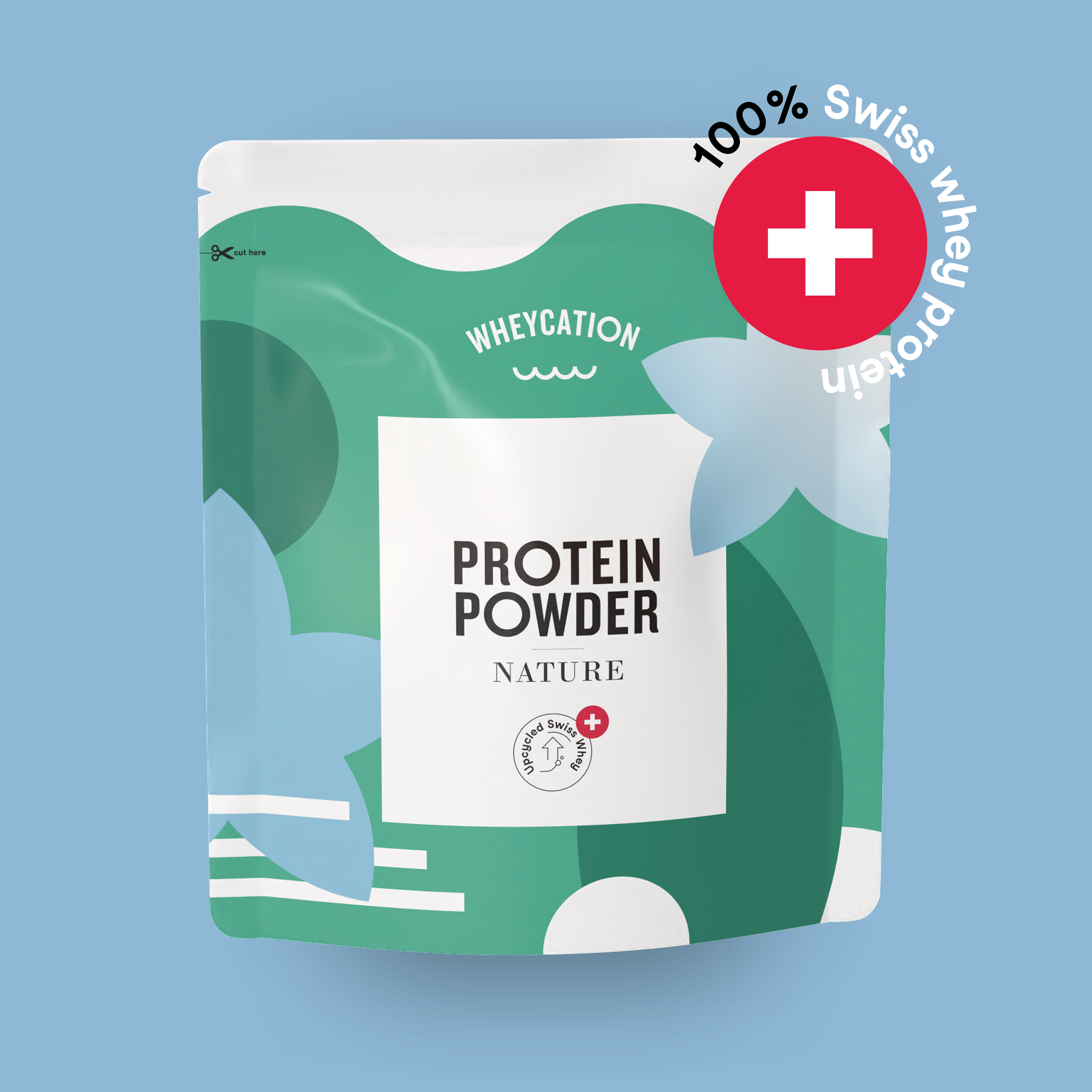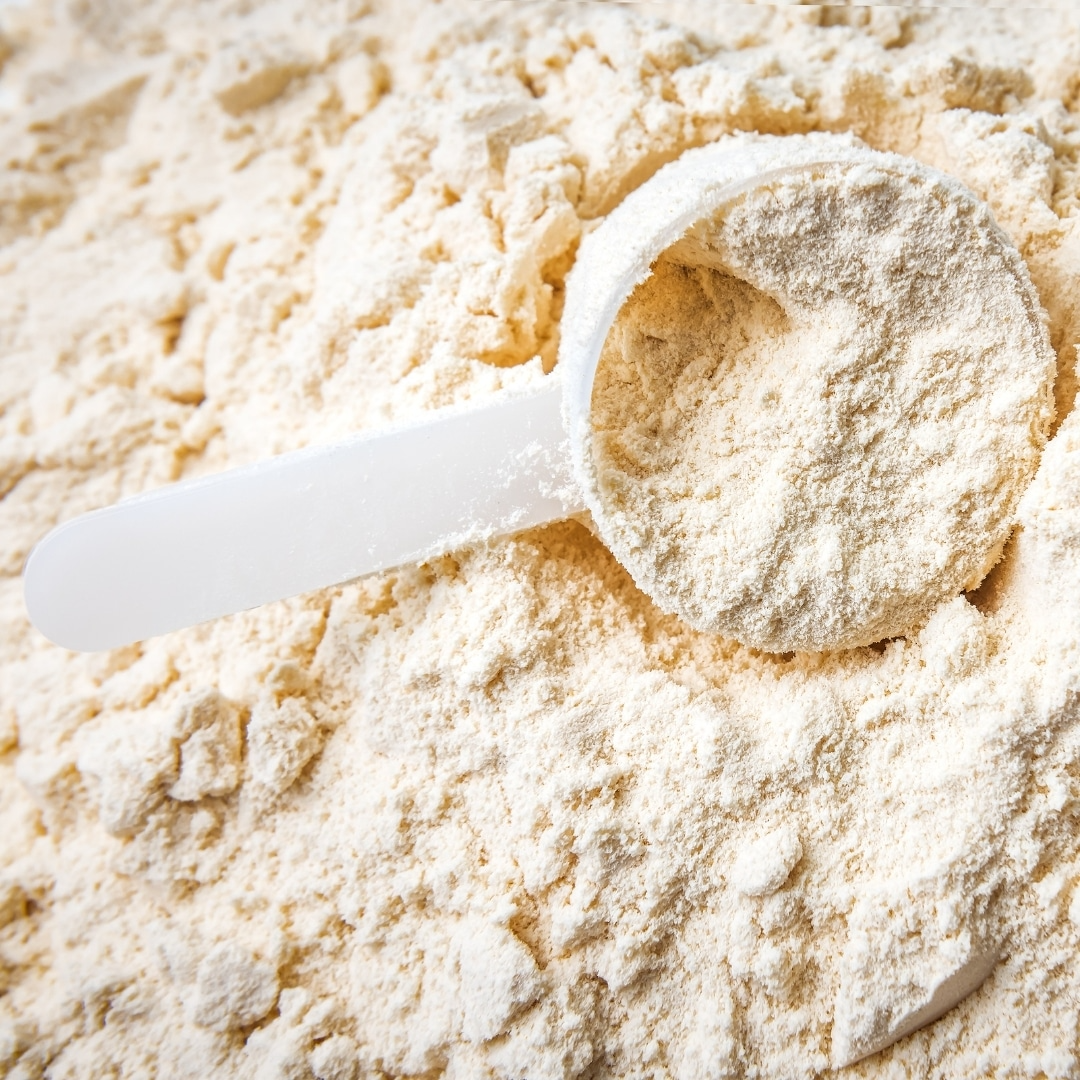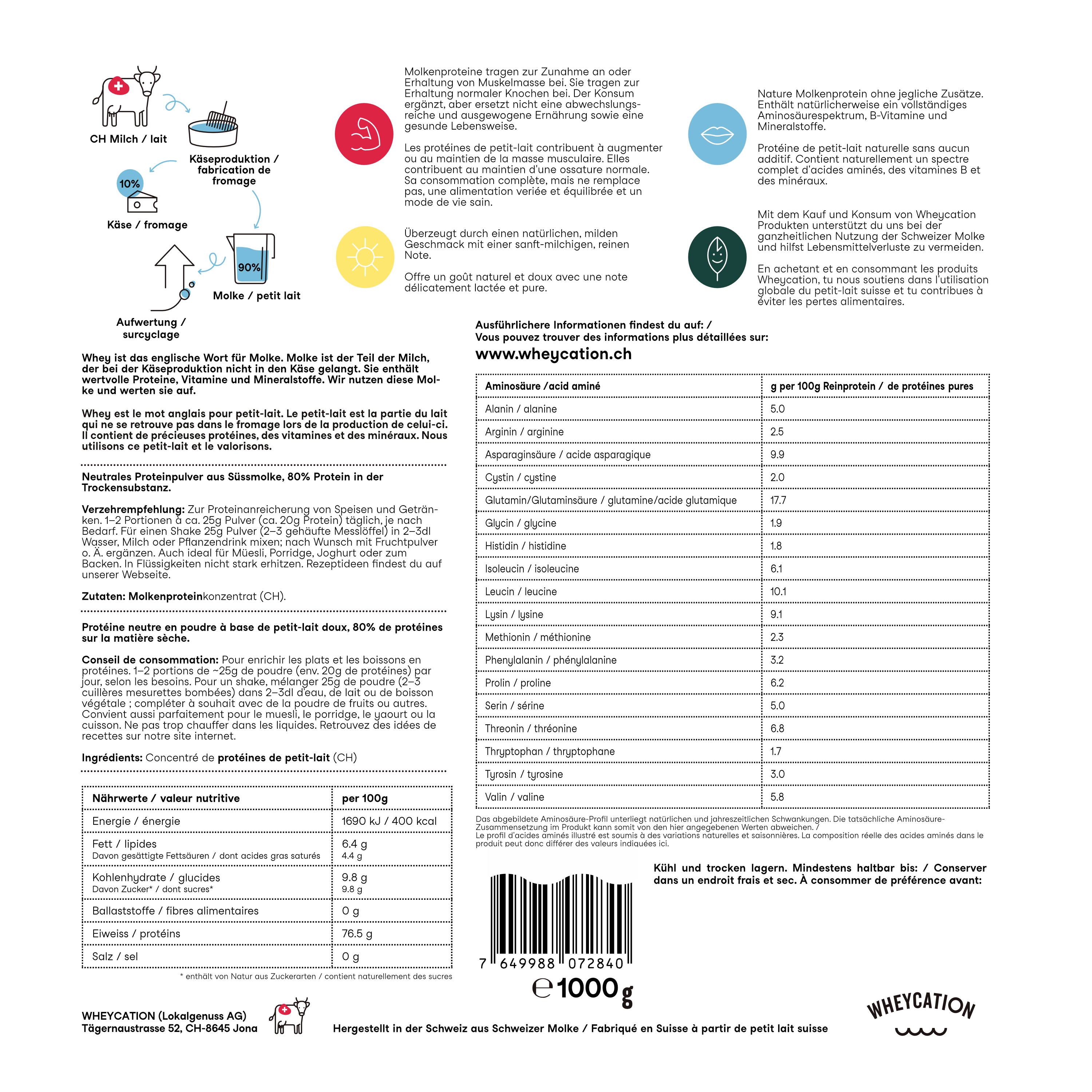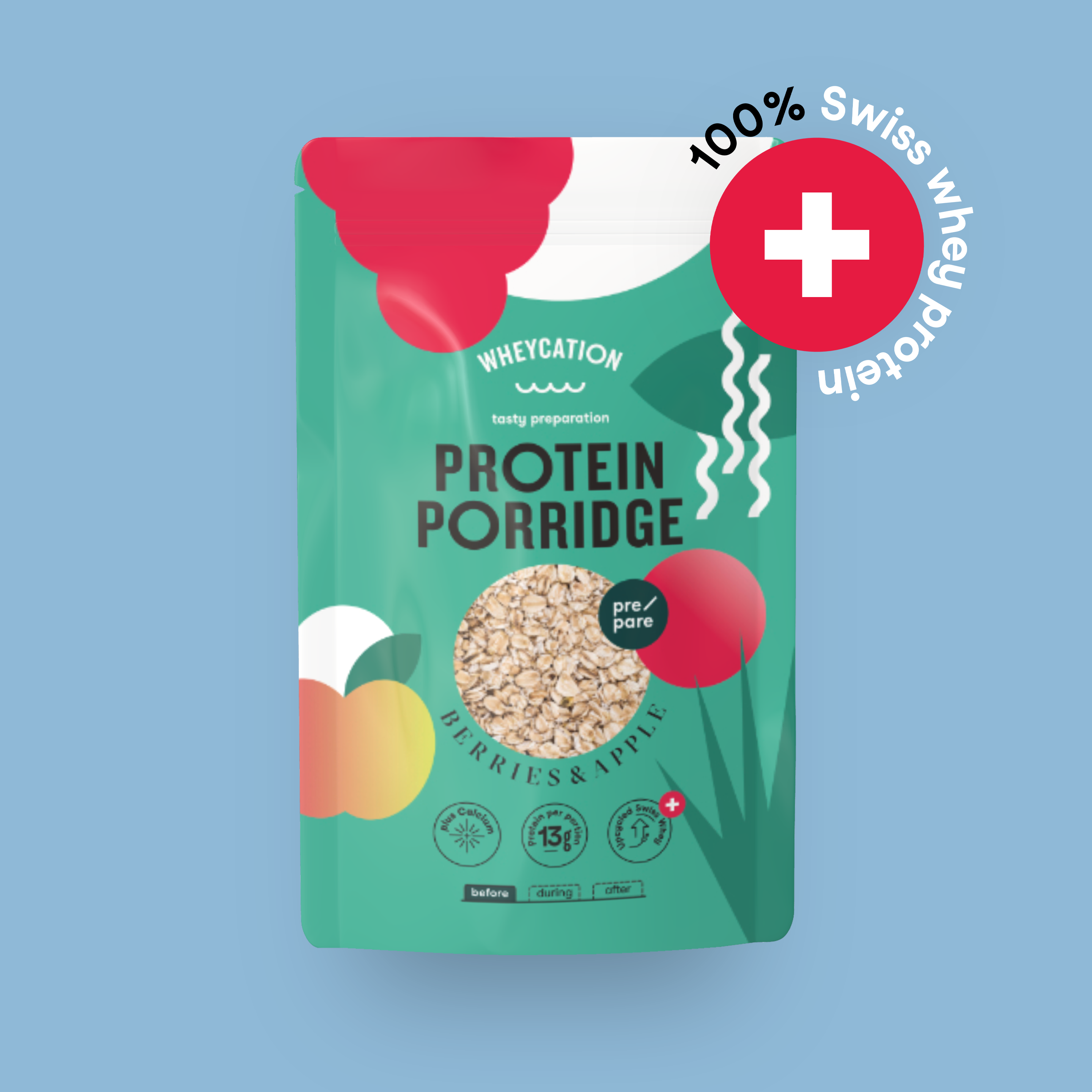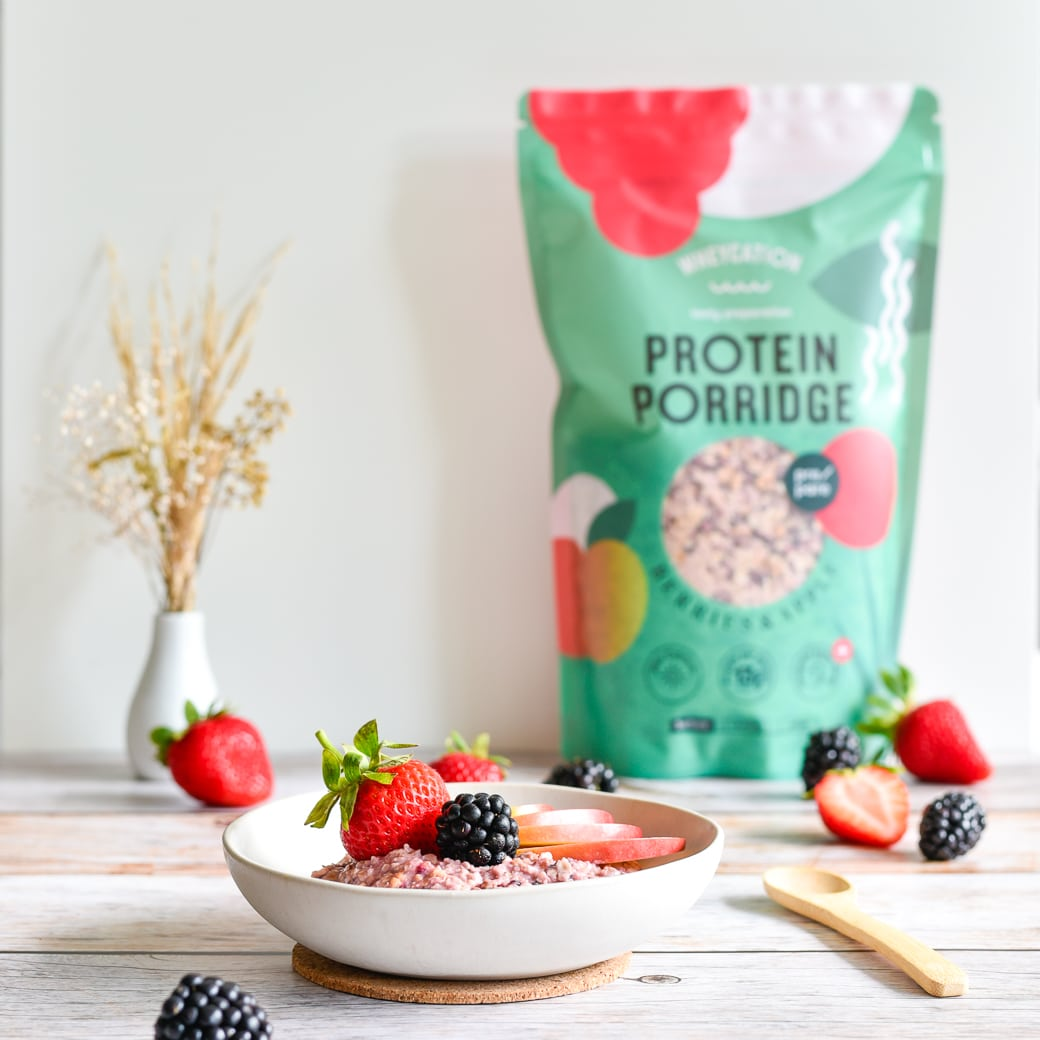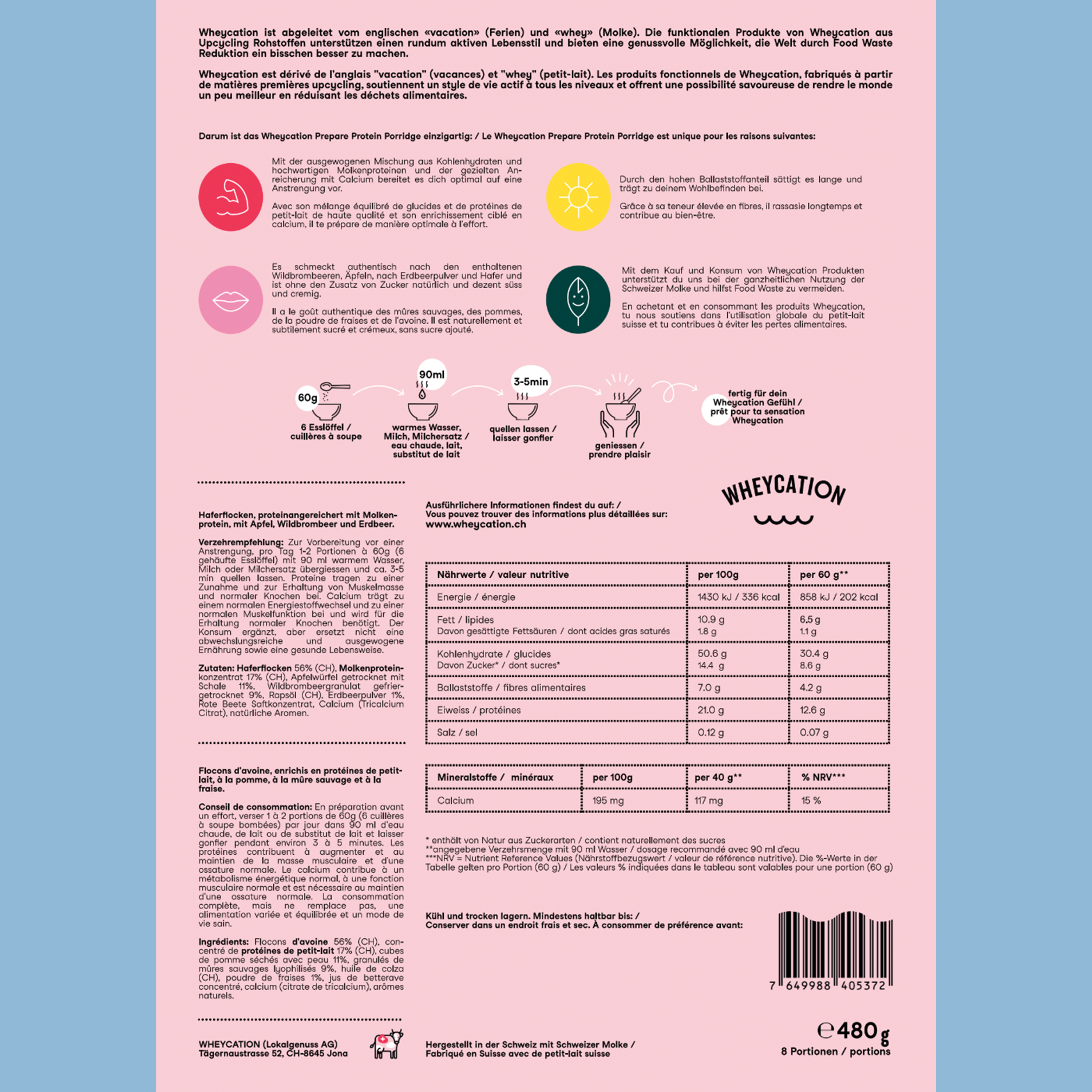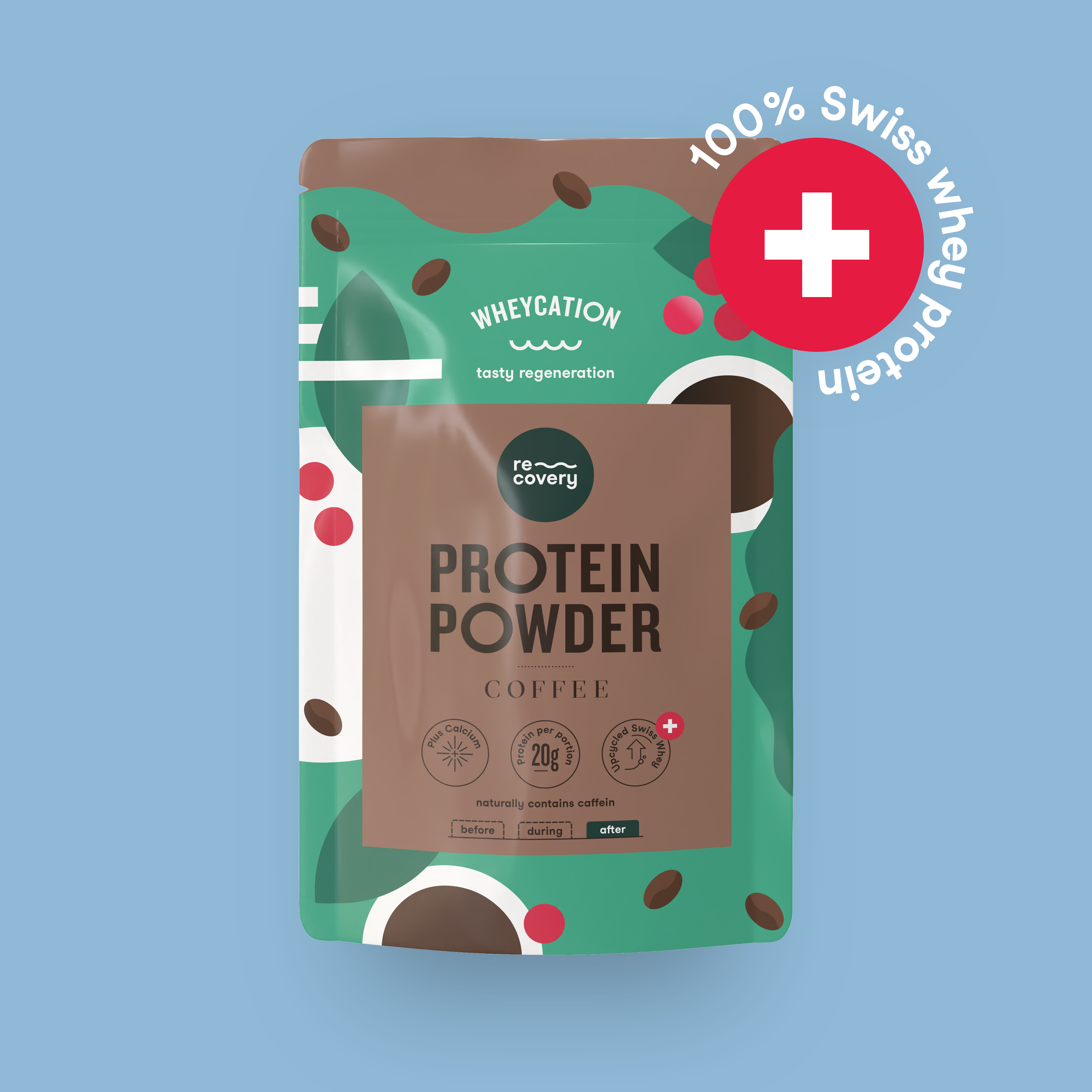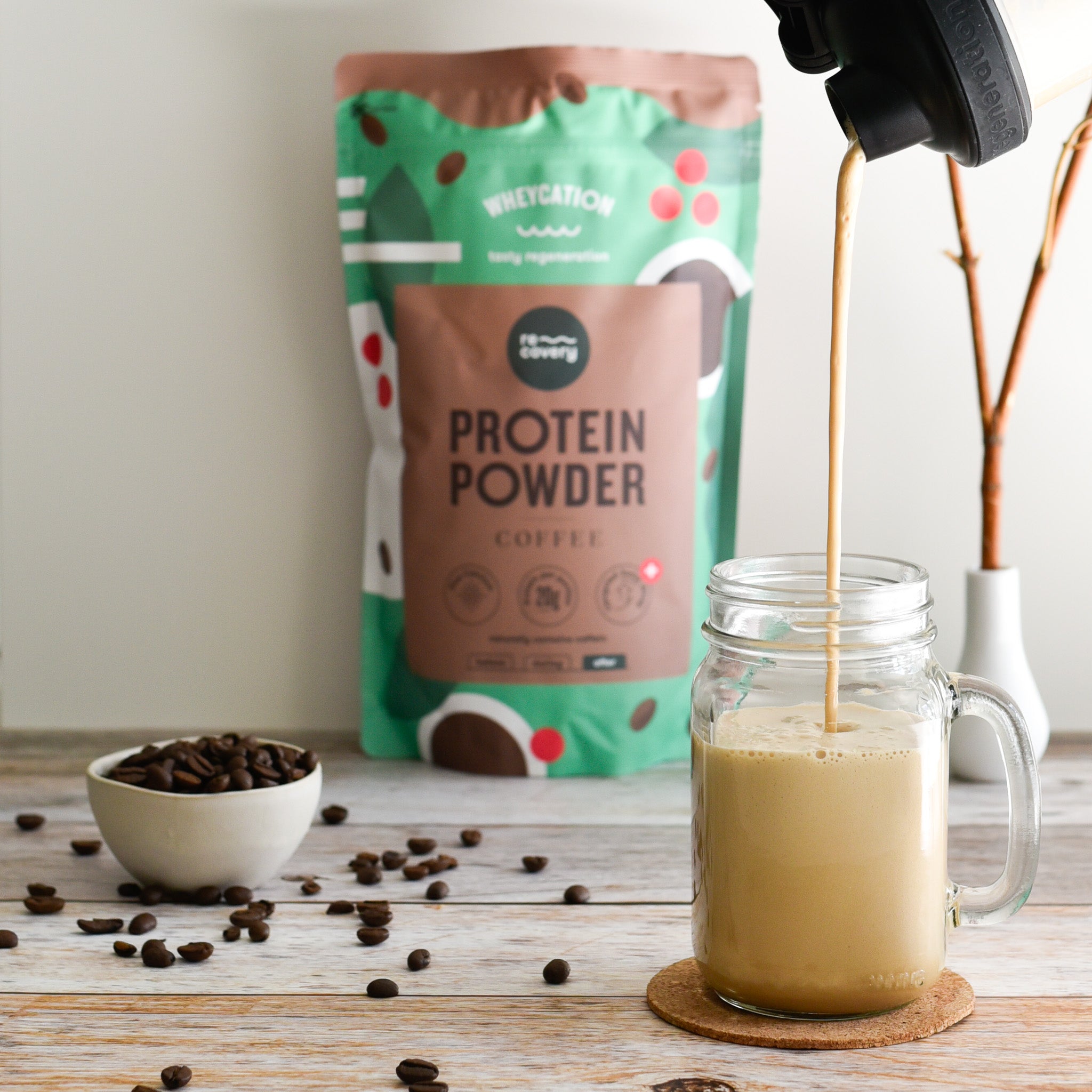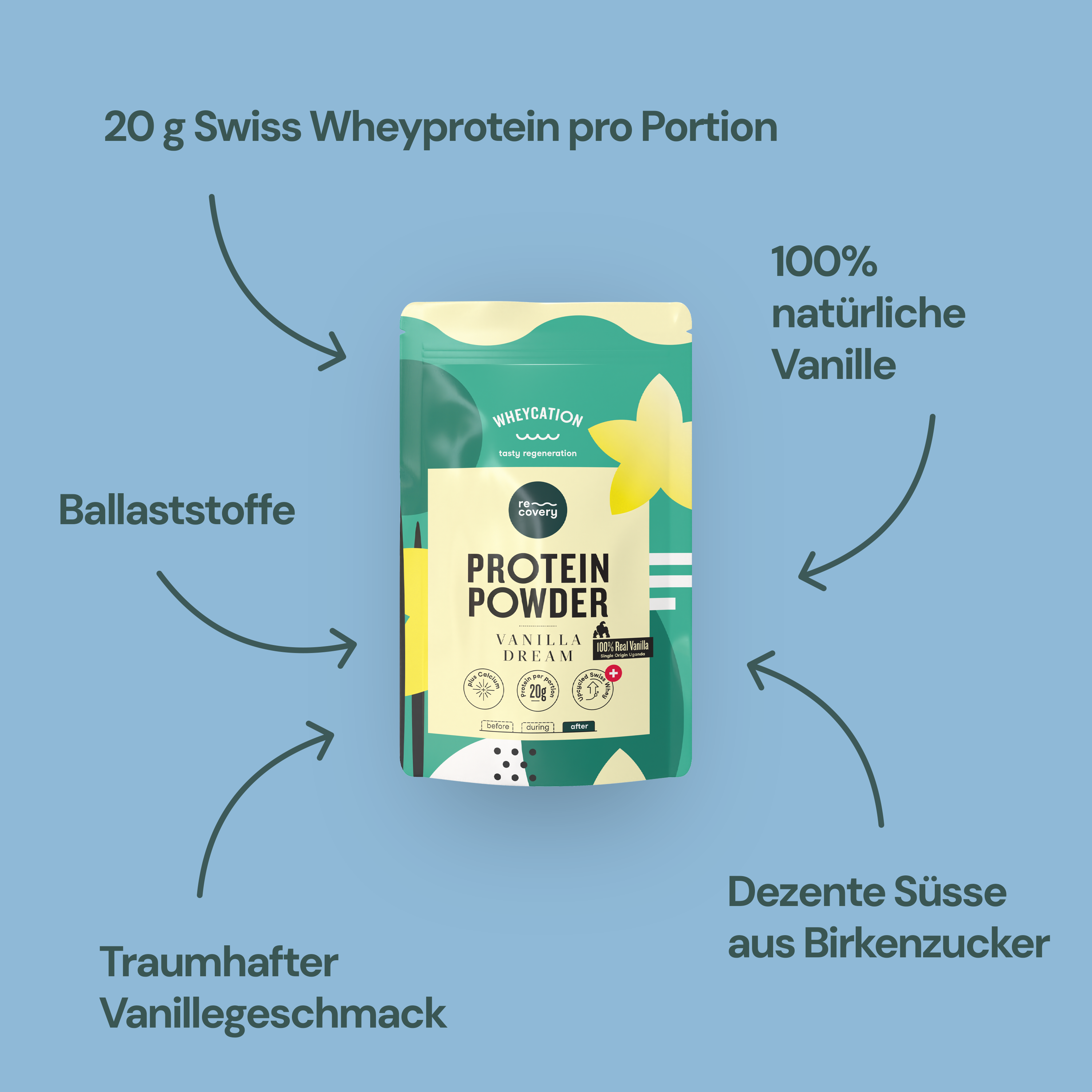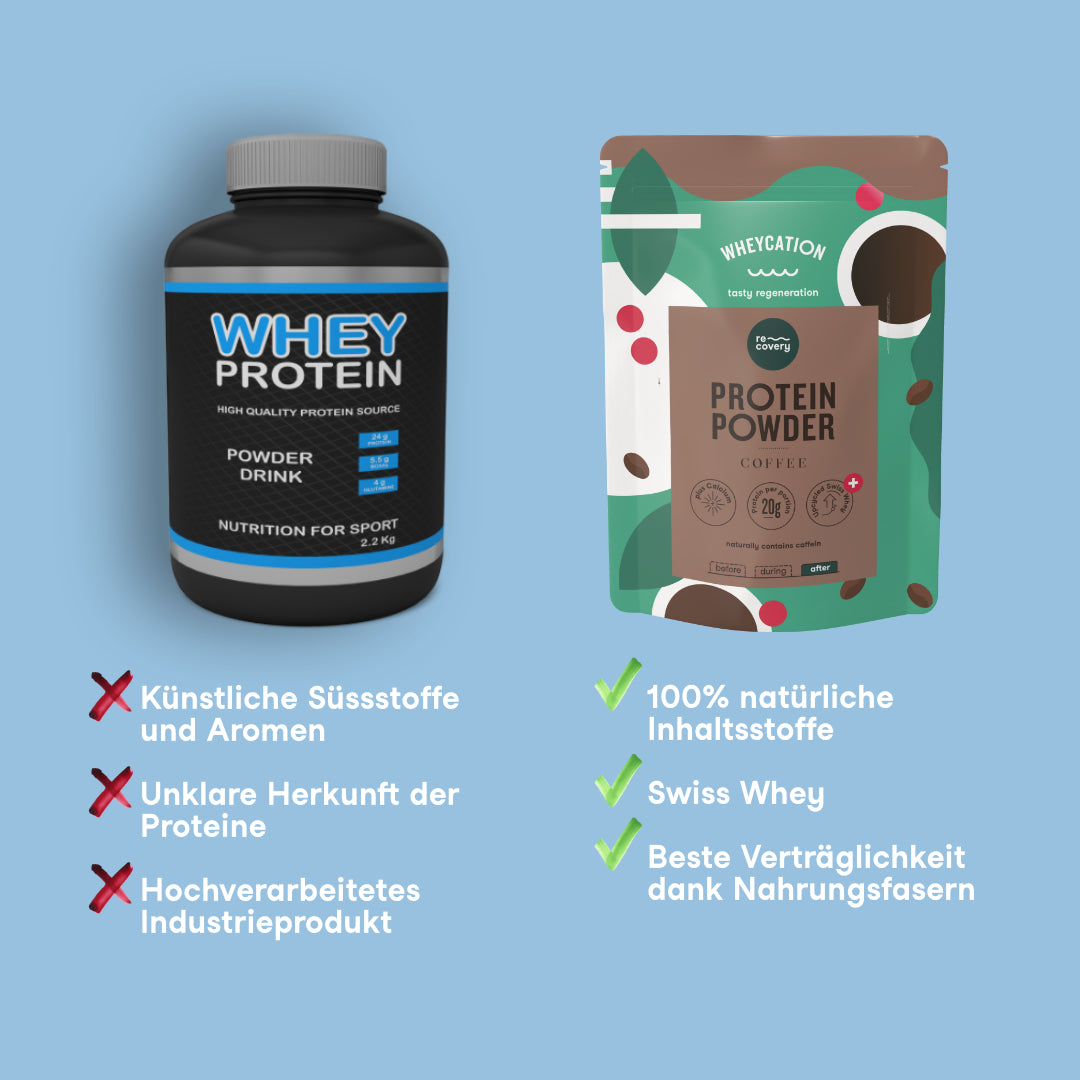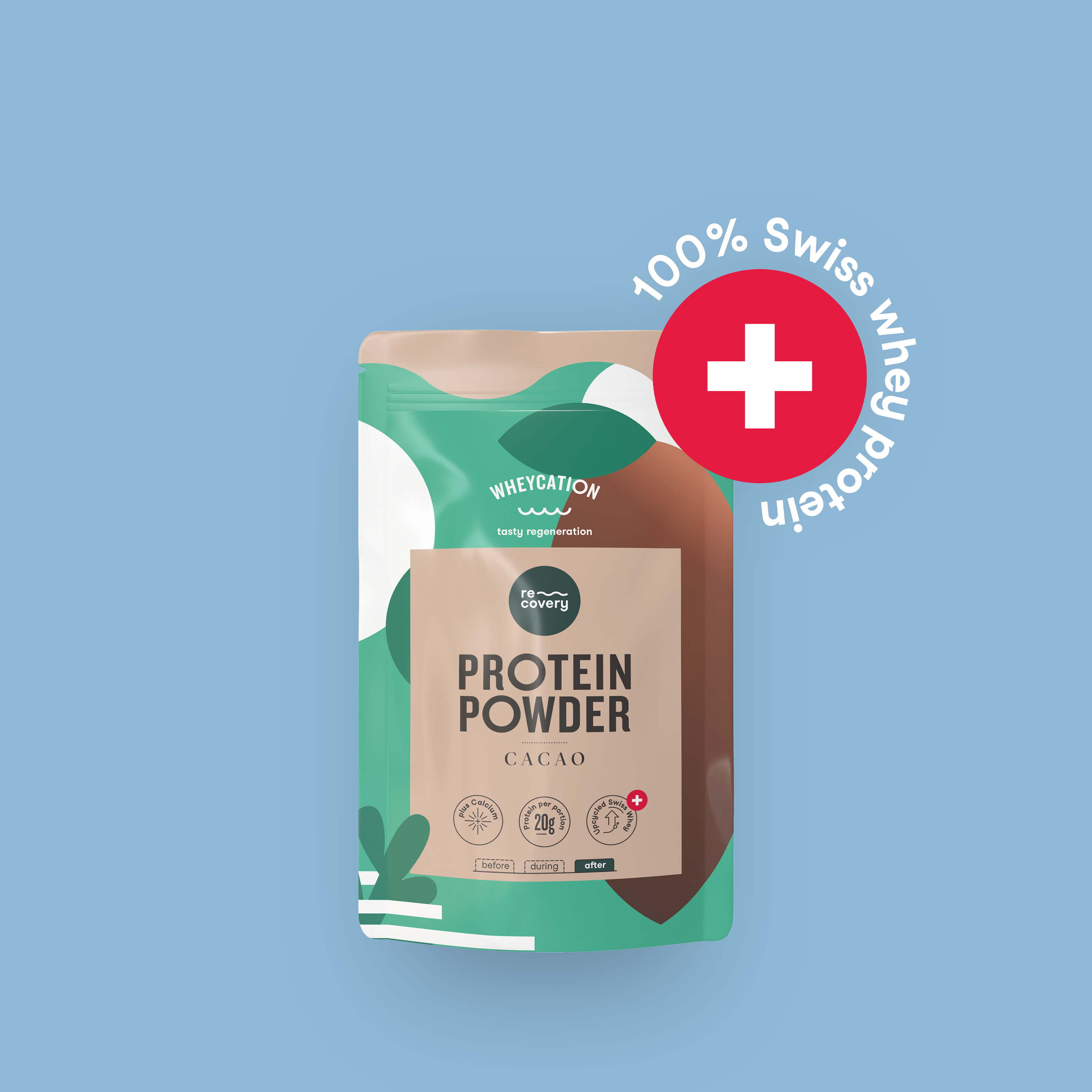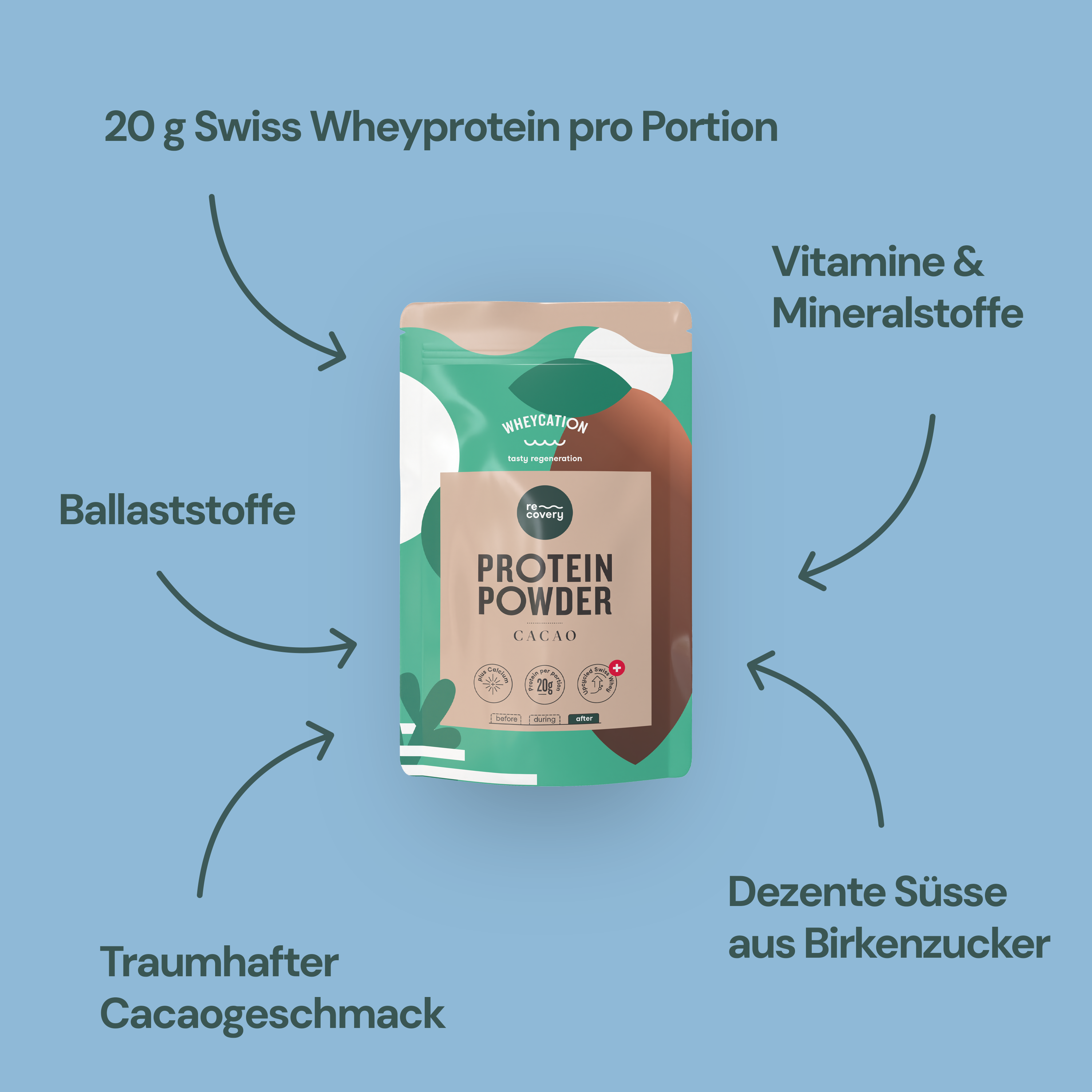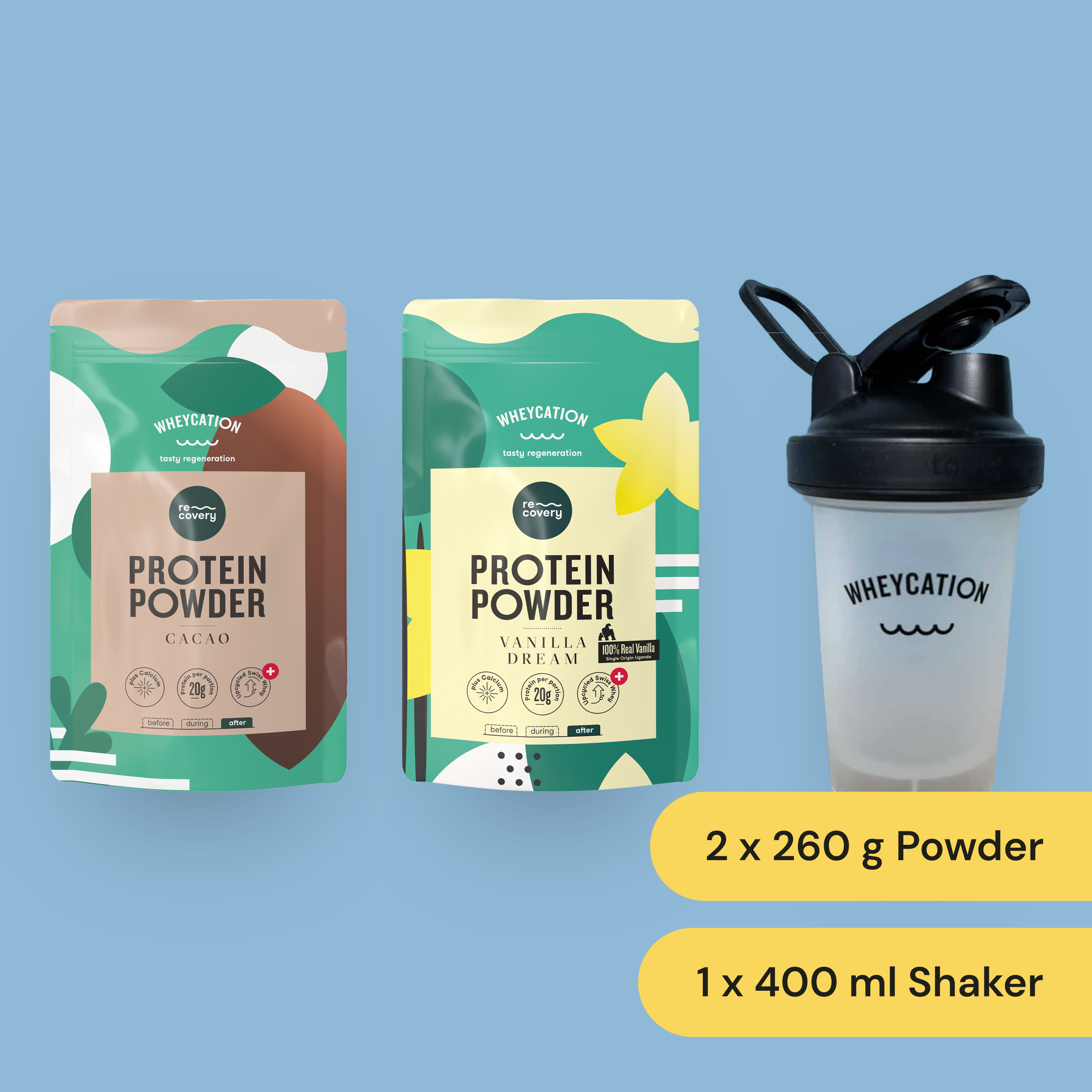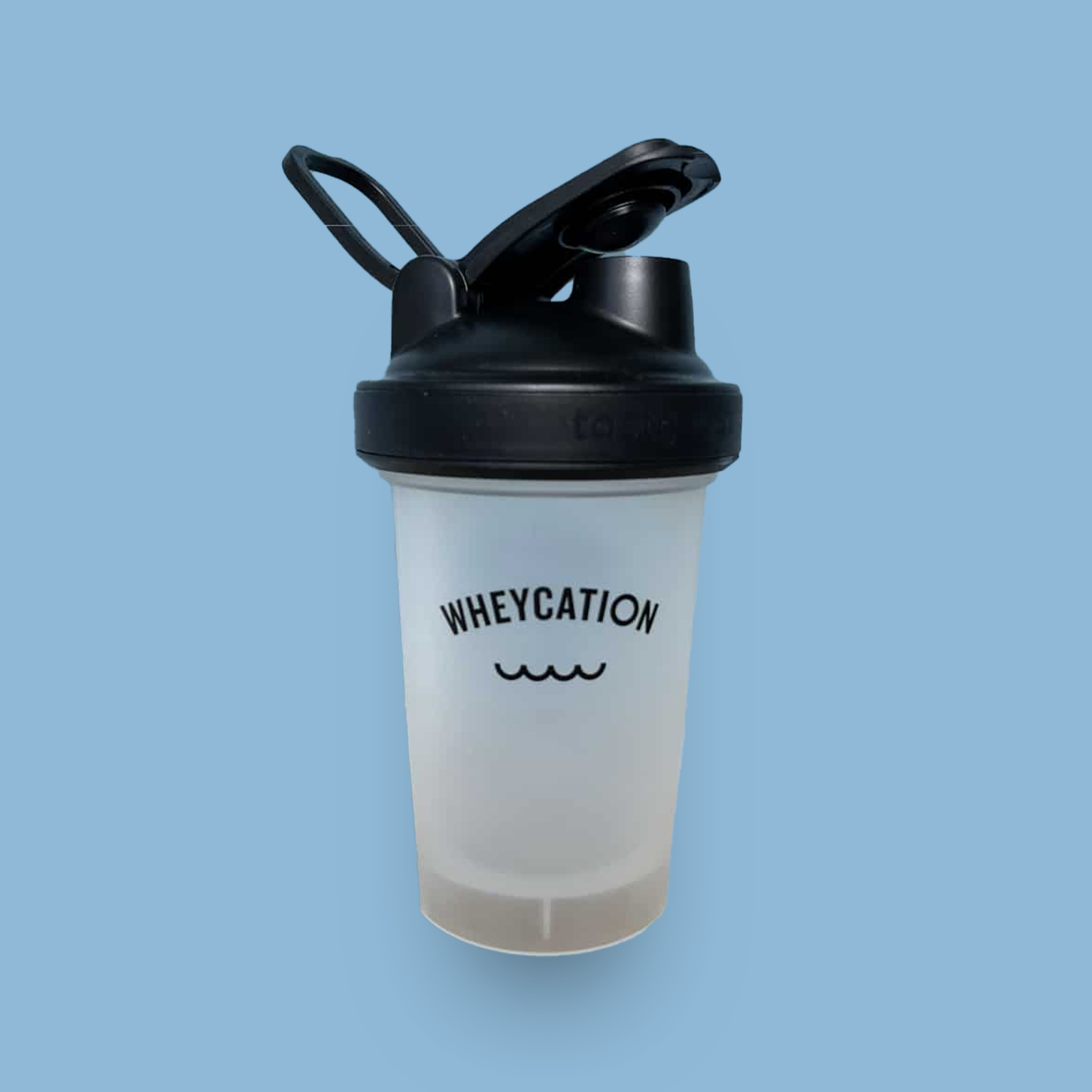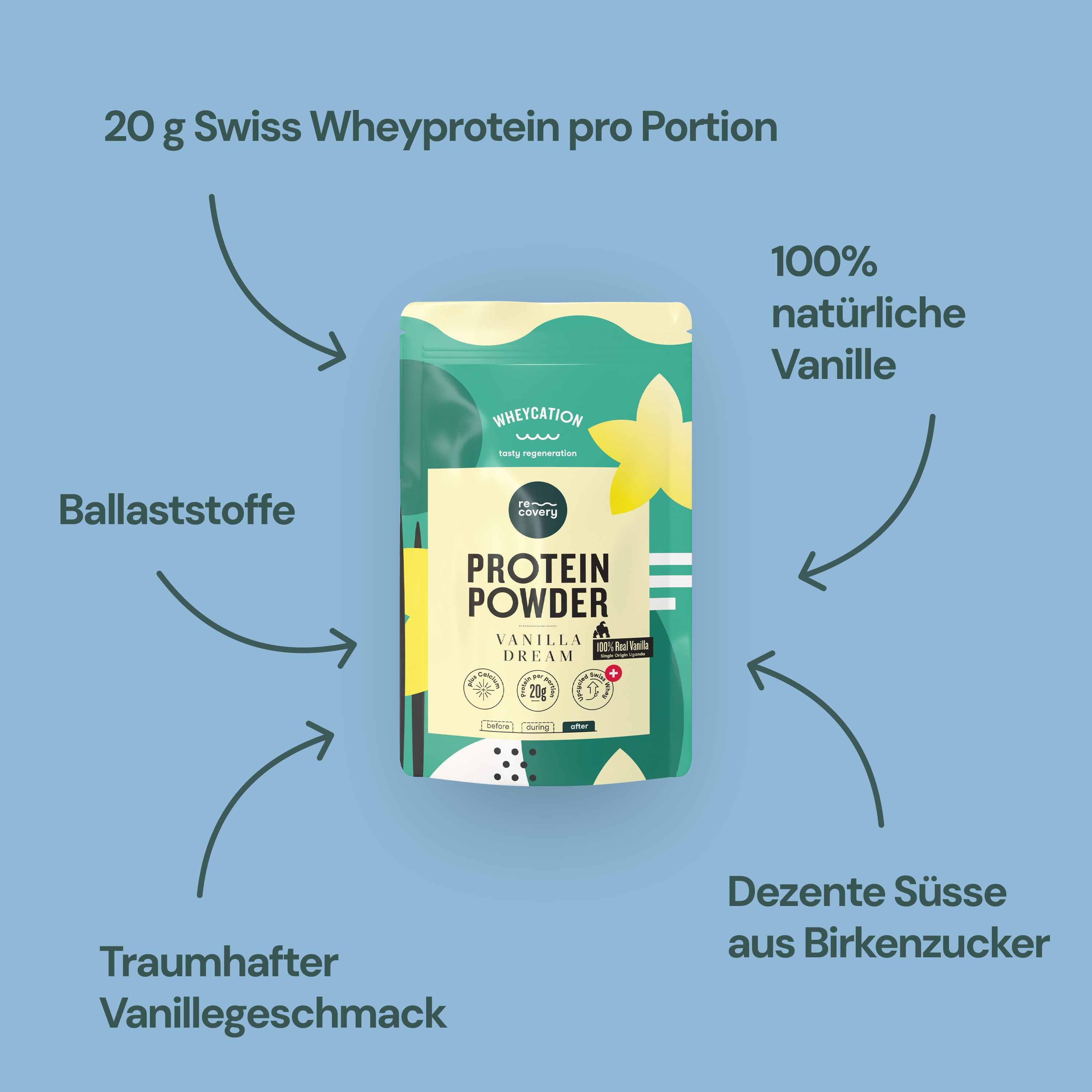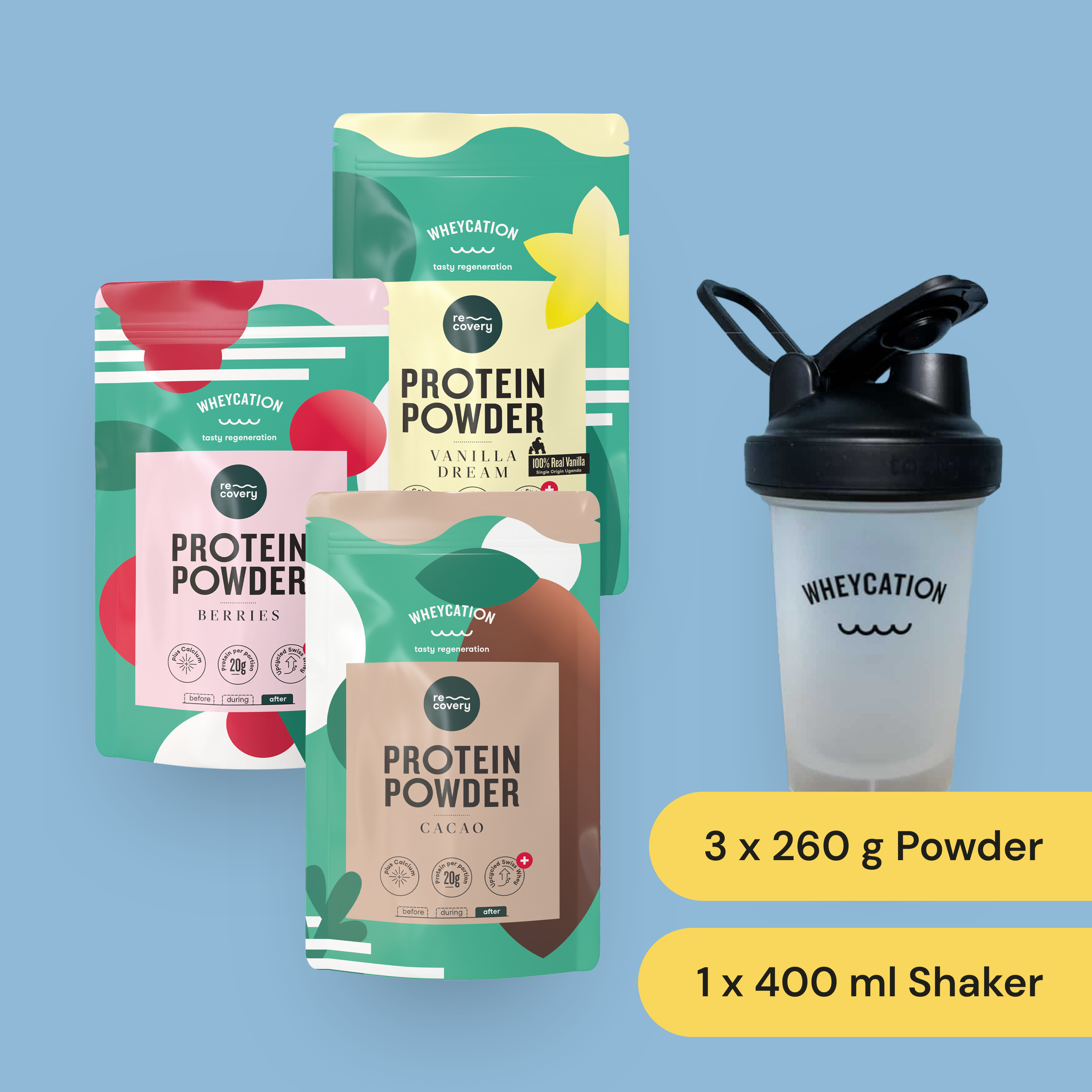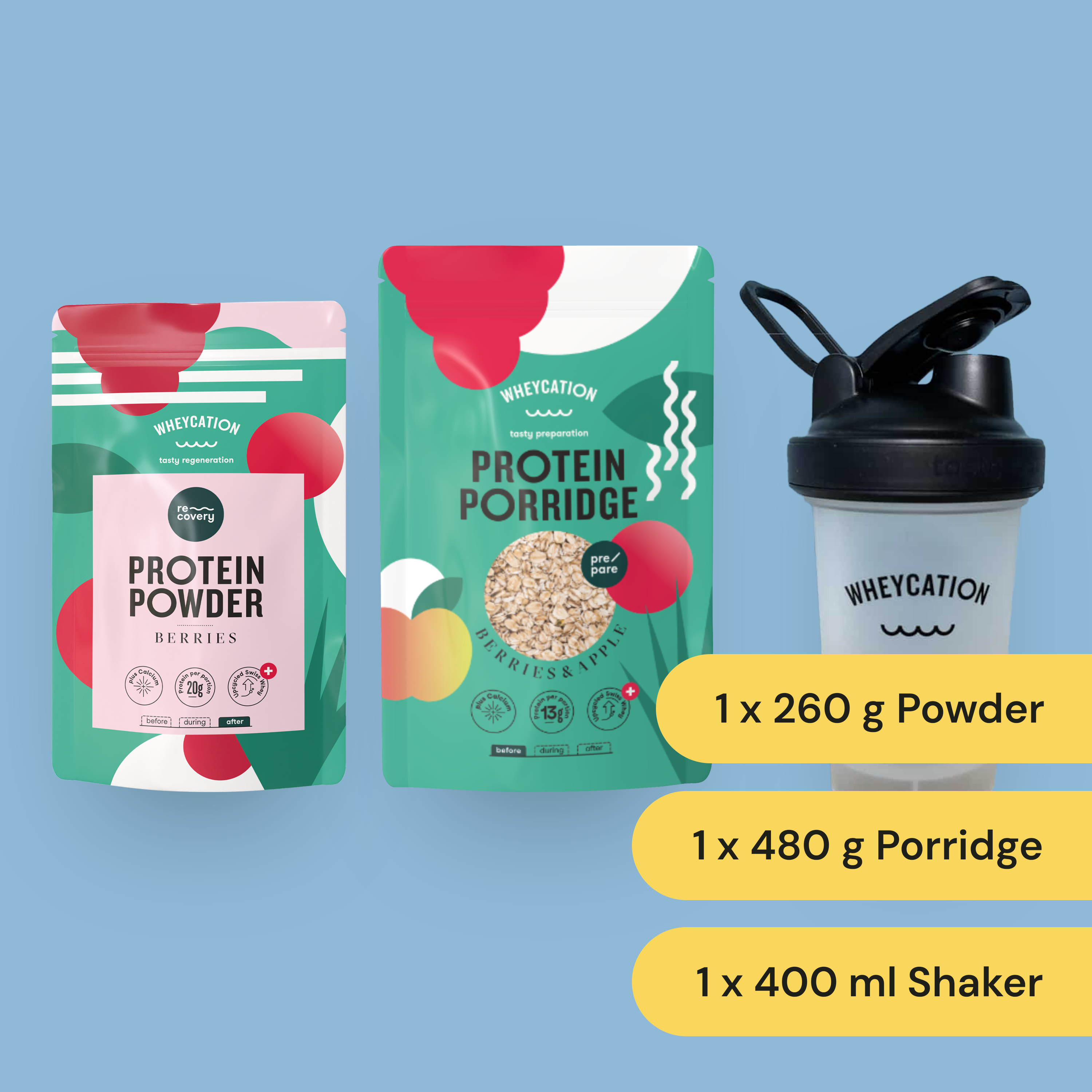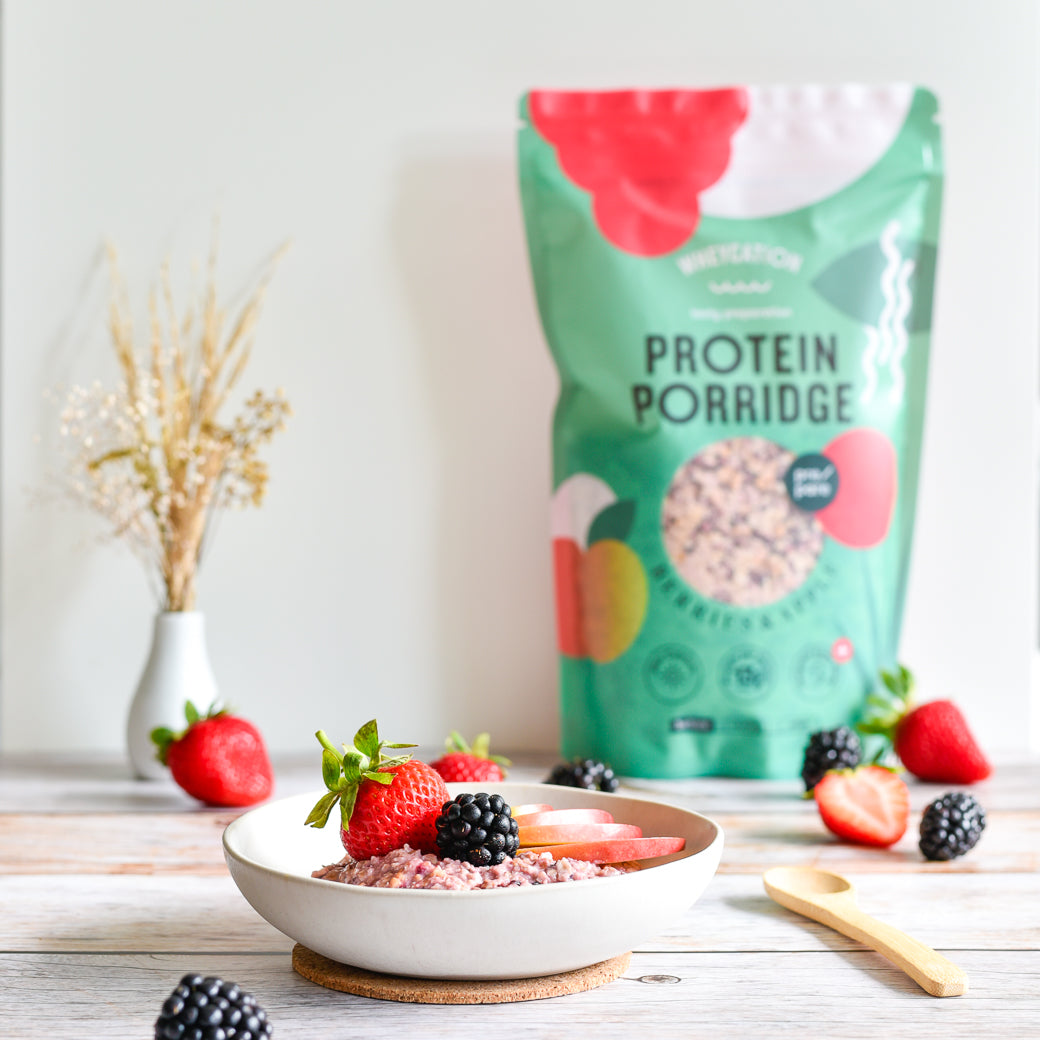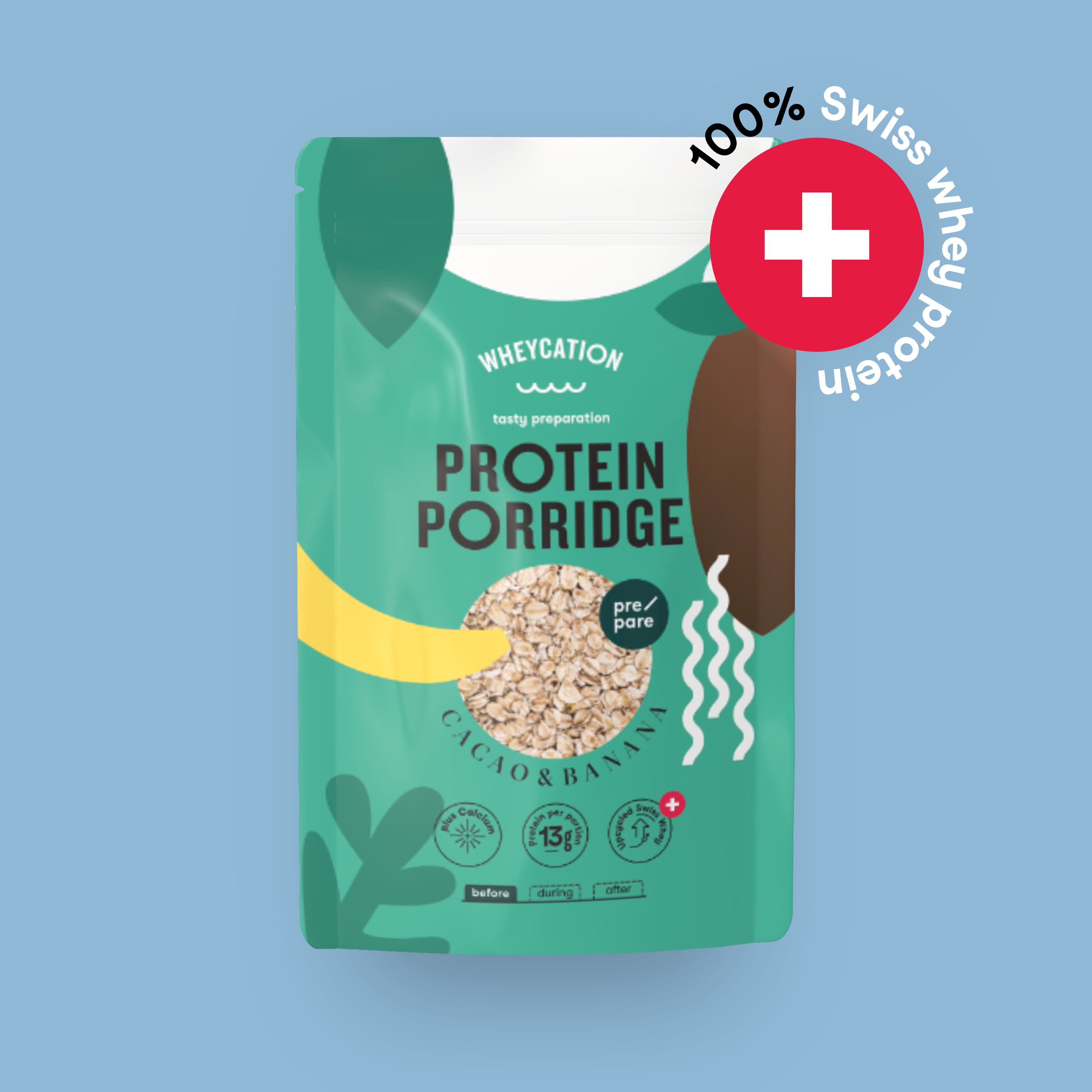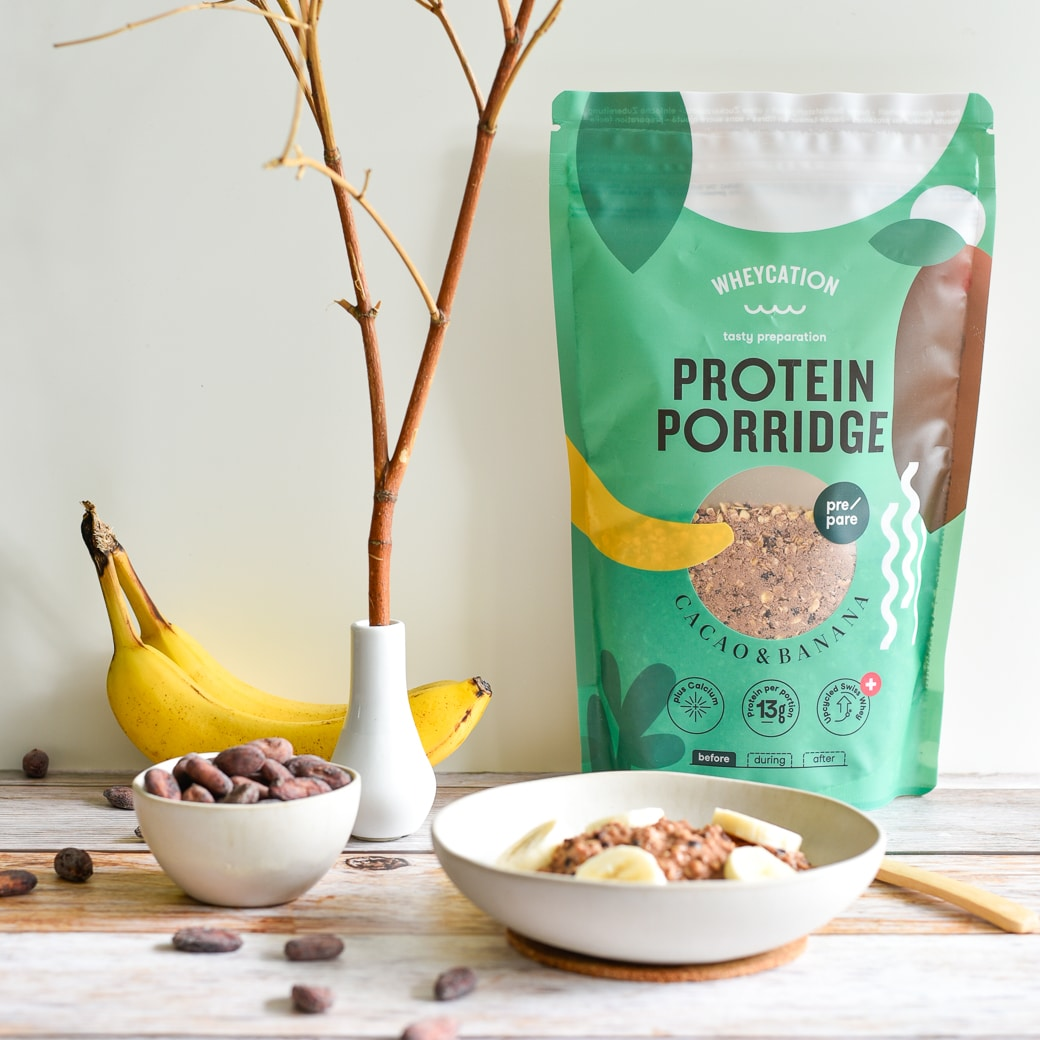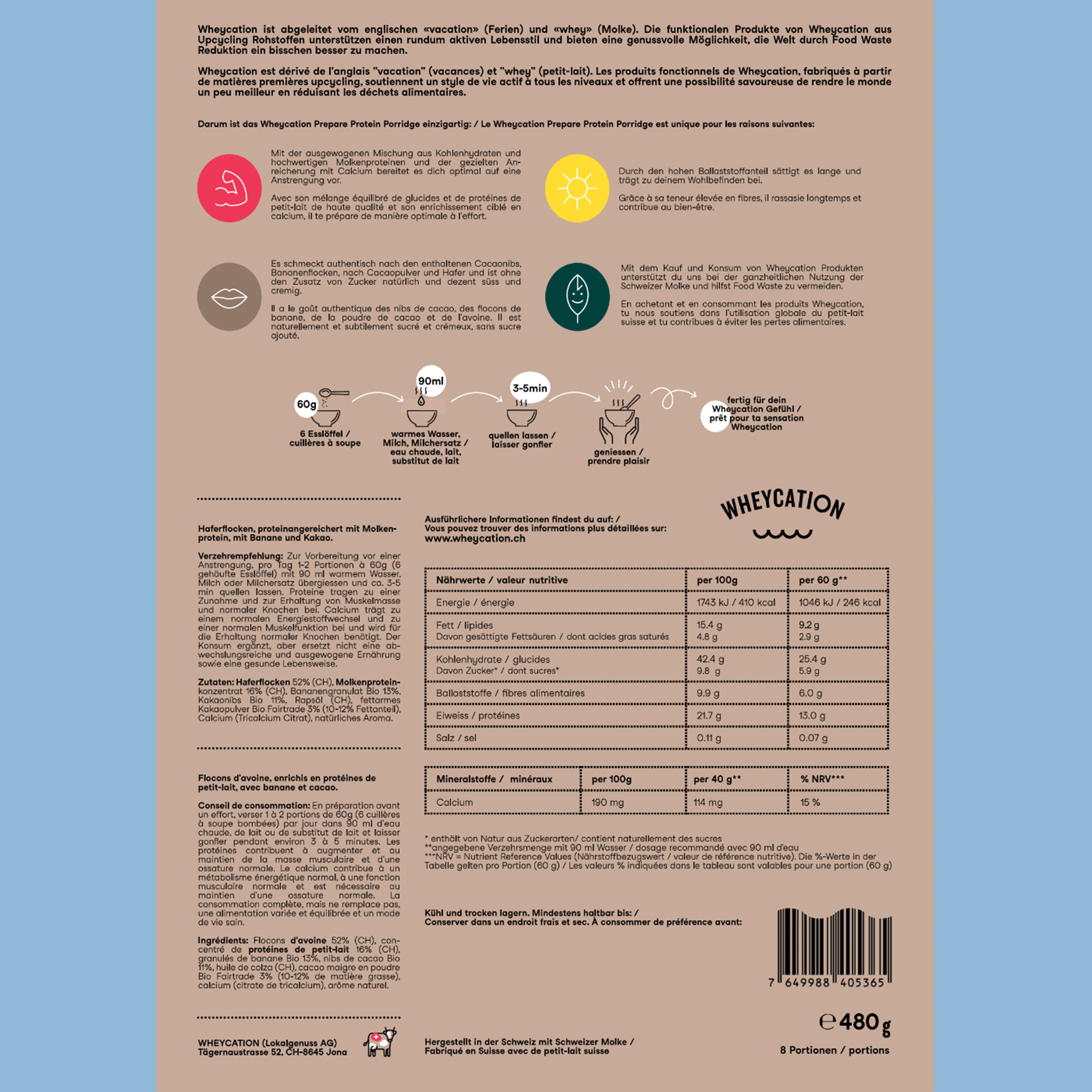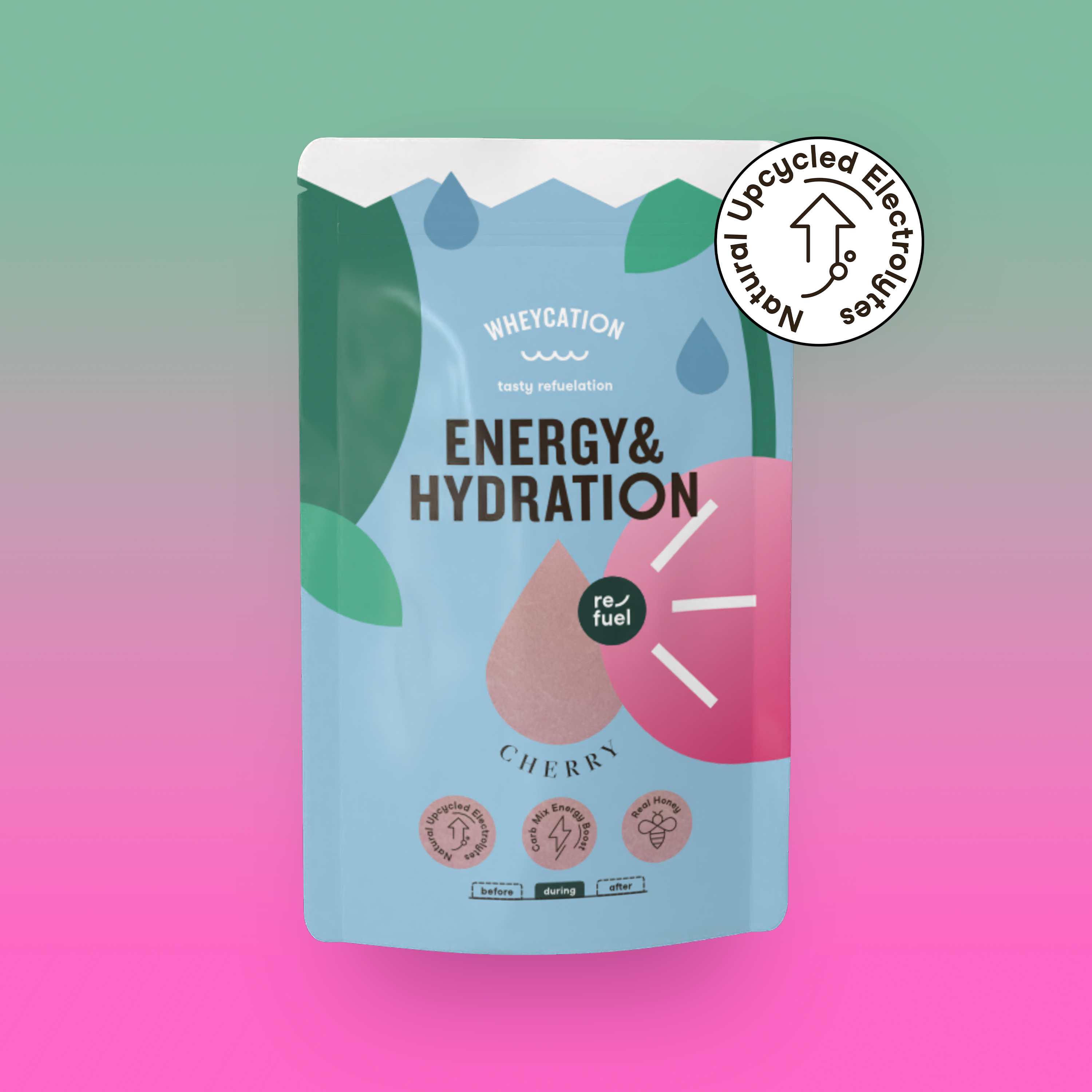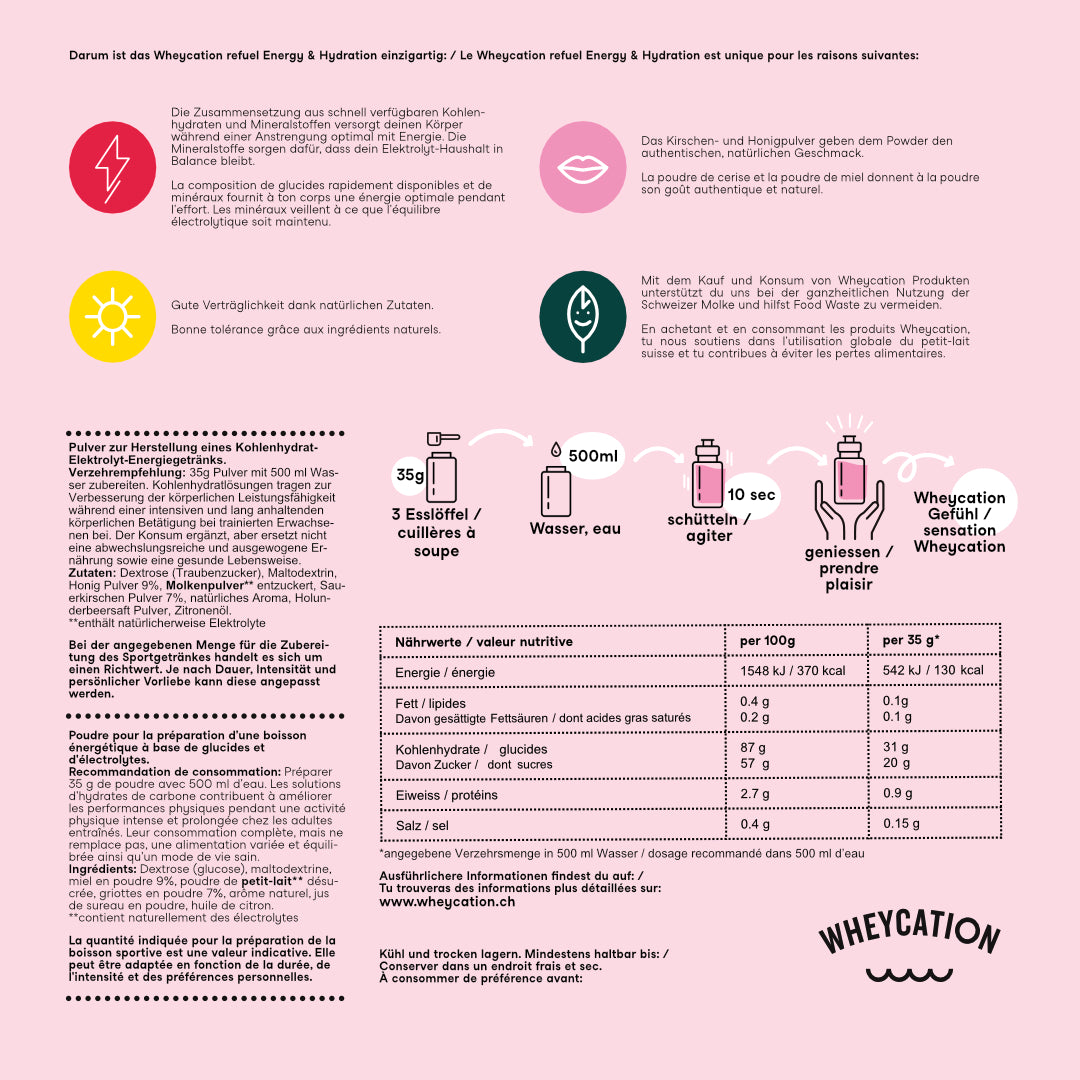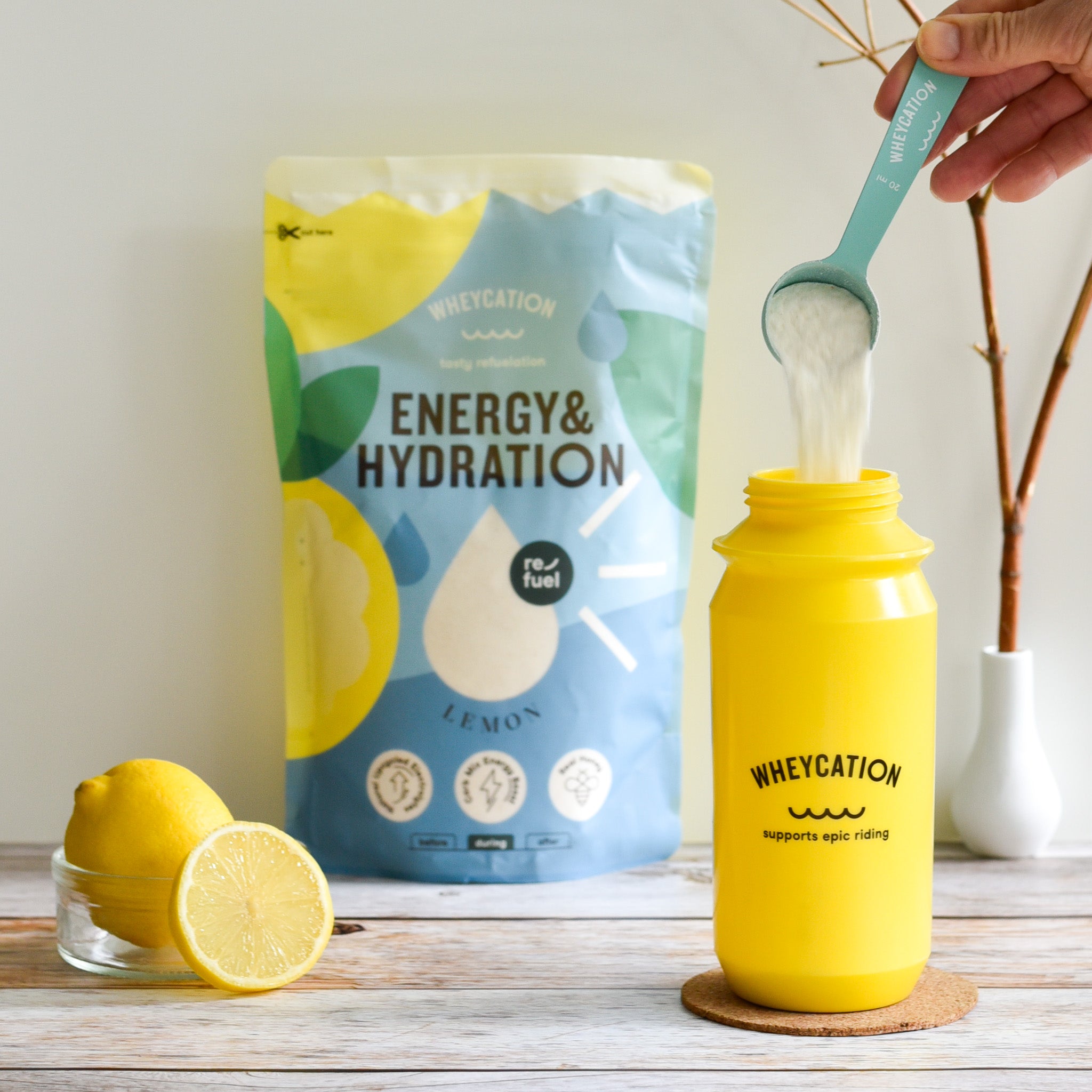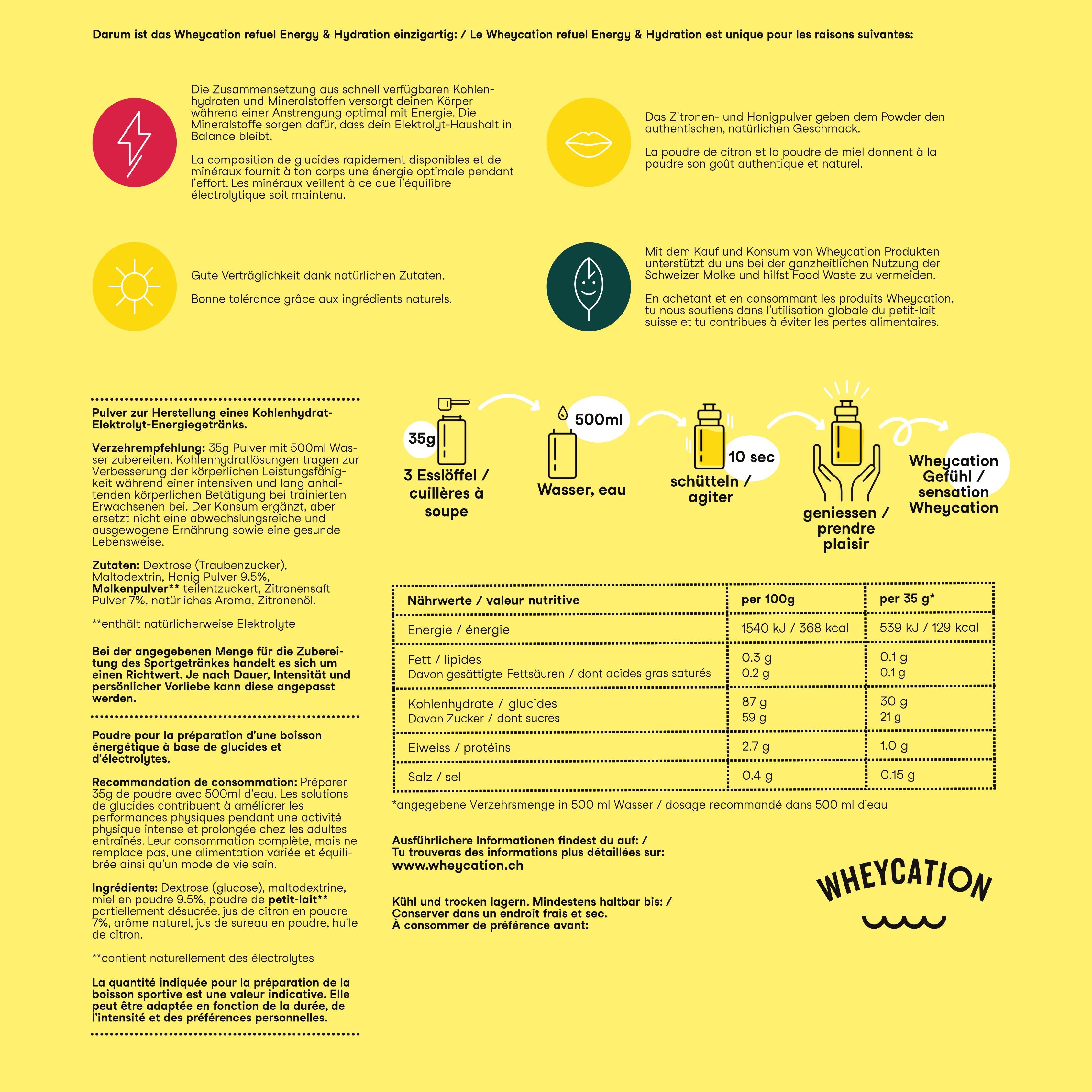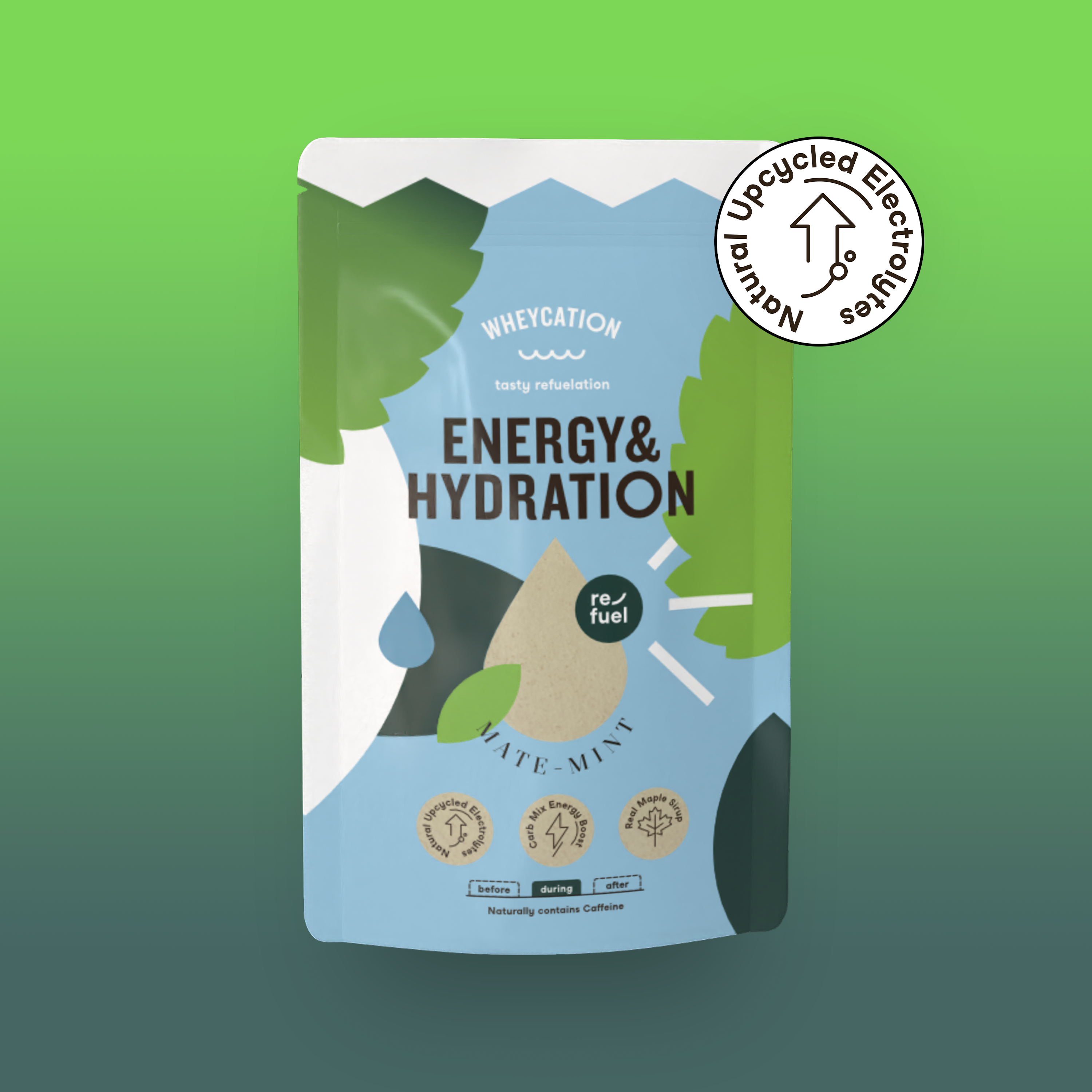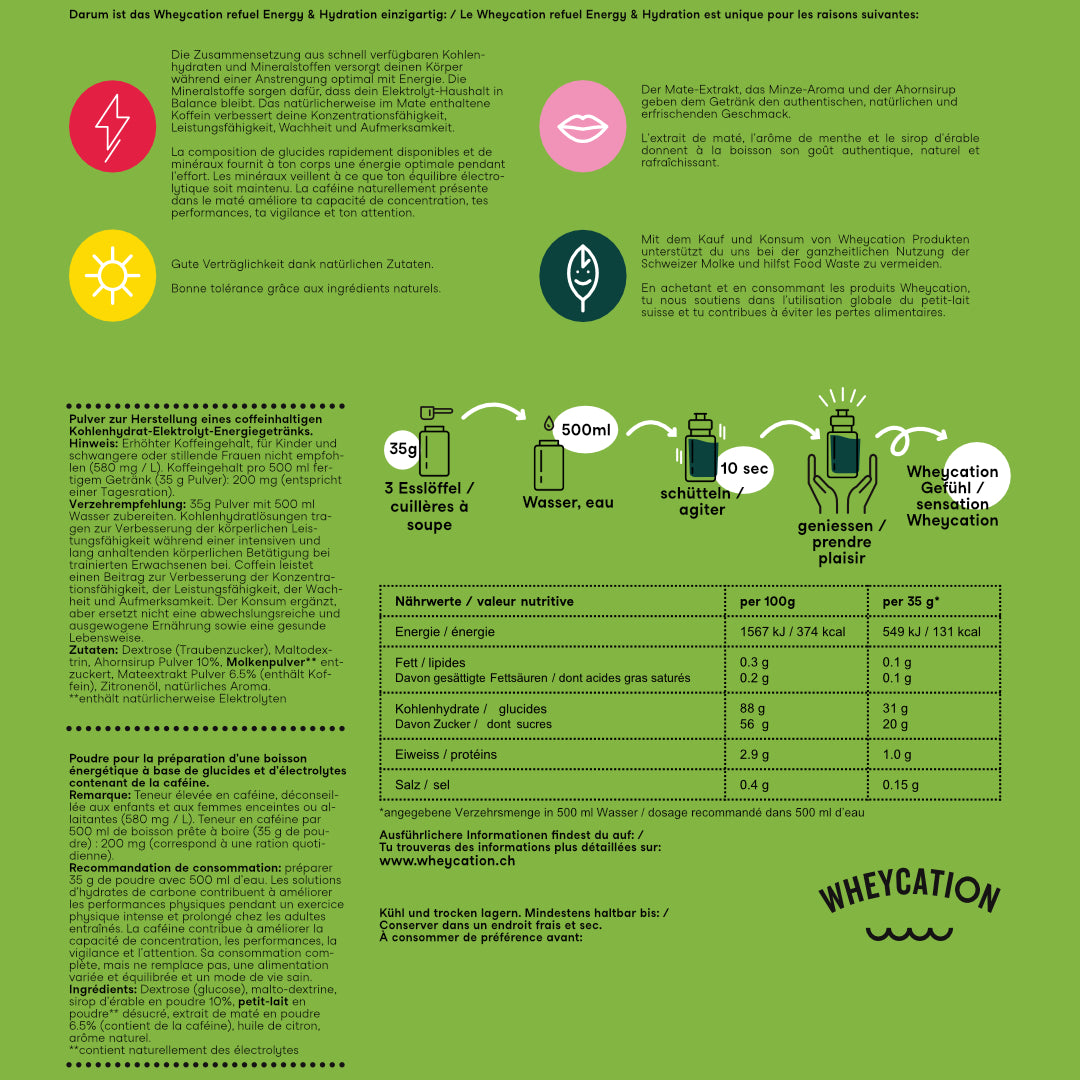Whey is the liquid left over from the milk during cheese production. It is a byproduct of cheesemaking. Anything from the milk that doesn't make it into the cheese is found in the whey. It consists of approximately 94 percent water, 4.5 percent lactose, 0.8 percent protein, 0.7 percent minerals and vitamins, and is virtually fat-free. Depending on the type of cheese produced, the whey can vary, especially in flavor.
Since Switzerland produces a lot of cheese, it also produces a lot of whey. Around 1.3 million tons annually.
From a nutritional perspective, whey is one of the highest quality protein sources . According to the latest findings, whey protein is the most nutritionally valuable protein available. It is therefore frequently used in sports nutrition, clinical nutrition, and infant formula. Whey proteins are very satiating, yet quickly digestible and easily absorbed by the human body, and exhibit many positive functionalities. They are particularly important in regeneration. In the field of nutritional supplements, whey protein is usually referred to under the English term whey protein, or often abbreviated to whey.

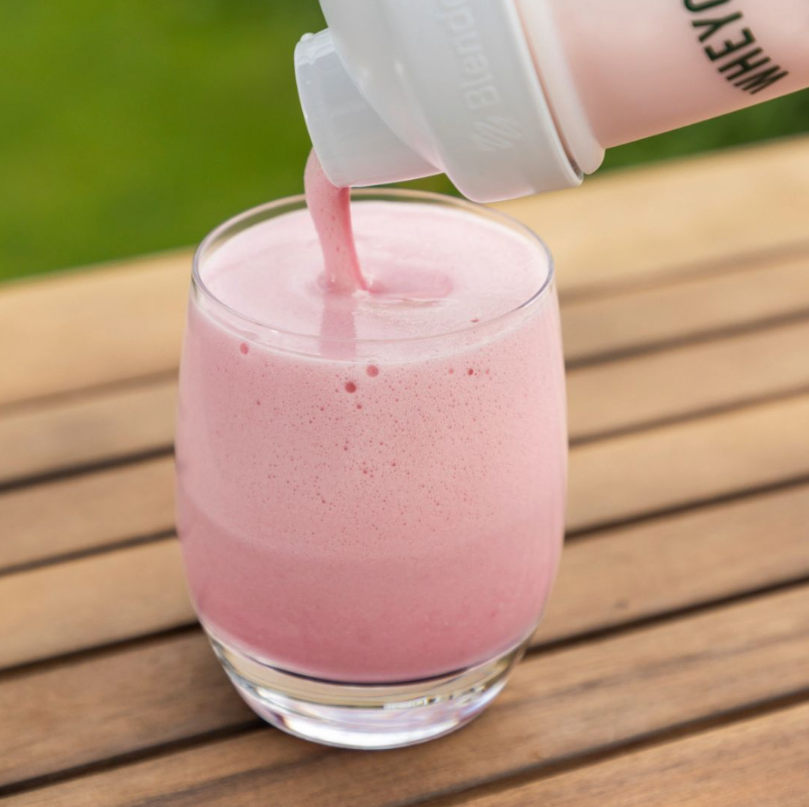
How do whey proteins work?
Whey proteins have a wide range of functions. They contribute to muscle building and inhibit muscle protein breakdown, they have antioxidant properties, and they strengthen the immune system, especially in combination with increased physical activity. The proteins also have a positive effect on the intestinal flora, cardiovascular diseases, and bone metabolism. The quality of proteins is usually expressed as their biological value. This is a measure of the suitability of a dietary protein as a substitute for body protein. The biological value of whey proteins is very high due to their high content of all essential amino acids, i.e., protein building blocks that the body cannot produce itself but needs for proper metabolism.
Whey also contains the minerals potassium, calcium, and phosphorus, as well as vitamins B1, B2, B6, B12, and pantothenic acid in nutritionally relevant concentrations. Other minerals and trace elements found in whey include magnesium, zinc, iron, copper, and iodine. This list is not exhaustive. Whey contains many other valuable, natural ingredients.
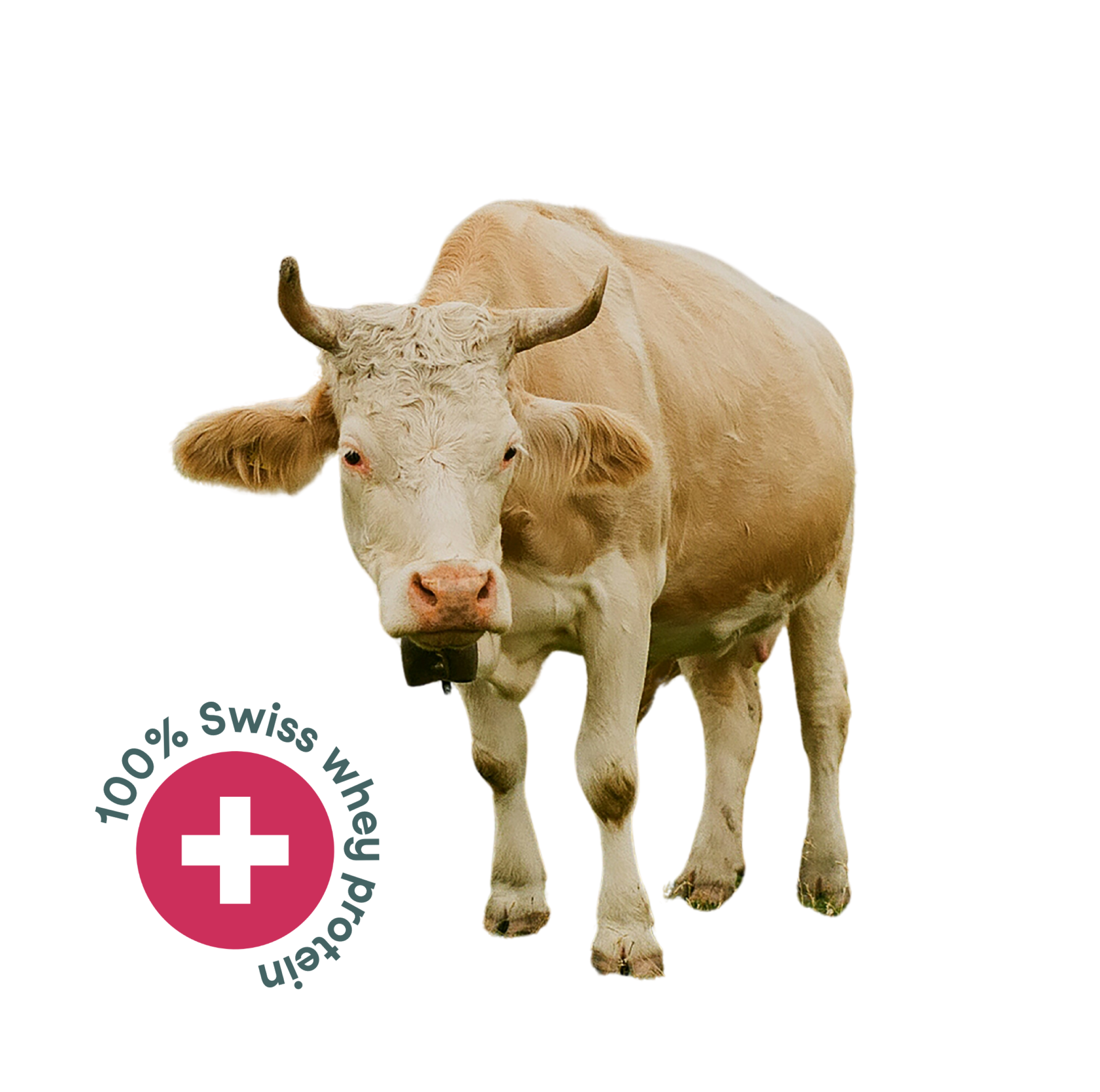
What is special about Swiss whey ?
We work exclusively with Swiss whey. The Suisse Garantie-certified whey protein we use for our shake powder and to enrich our whey shake is a concentrate made from Swiss whey produced during cheese production. To produce this whey protein concentrate, the whey is gently filtered through membranes and then dried. The concentrate is then 80 percent protein, but still contains minerals and vitamins from the whey.
In addition to shorter transport routes, Swiss origin guarantees compliance with extensive regulations. Switzerland has some of the strictest animal welfare laws in the world. The cows from which the milk for cheese production comes are fed only strictly controlled, species- and environmentally-friendly feed – mostly local roughage, such as grass, clover, and herbs. And the feed certainly does not contain genetically modified organisms, hormones, or antibiotics to enhance performance.
Furthermore, neither our whey nor our whey proteins are extracted directly from milk, as is often the case with other manufacturers. We truly only use whey that is already produced during cheese production. This way, we don't contribute to an increase in milk consumption. On the contrary, we ensure that resources are used more effectively.
Swiss whey is a natural, local superfood with tremendous potential. Its health benefits have been recognized for a very long time. We find it incomprehensible that its reputation as a "waste product" or a product that doesn't provide any enjoyment persists so persistently in Switzerland. There are challenges to using Swiss whey (more on this in the other chapters of the guidebook), and much development and research still needs to be done.
We are convinced that with our products we are taking a first, important step in the right direction and can offer sustainable, healthy and at the same time enjoyable products made from Swiss whey.
Sources
To the products
Recovery Protein Shake Cocoa 520g
Recovery Protein Shake Berries 520g
Protein Porridge Berries & Apple 480g
Recovery Protein Shake Coffee 520g
Recovery Protein Shake Coffee 520g
Recovery Protein Shake Coffee 260g
Recovery Protein Shake Cocoa 520g
Recovery Protein Shake Cocoa 260g
Starterset Protein 2x260g & Shaker
Starterset Protein 3x260g CACAO-VANILLA-COFFEE
Starter set protein 3x260g & Shaker
Starter set Protein Berries & Shaker
Protein Porridge Berries & Apple 480g
Protein Porridge Cocoa & Banana 480g
Refuel Energy & Hydration Cherry 630g SALE
Refuel Energy & Hydration Lemon 630g
Refuel Energy & Hydration Mate Mint 630g SALE
Frequently asked questions about Swiss whey and whey proteins
What is whey and why is whey healthy?
And what is the difference between whey powder, whey protein concentrate and whey protein isolate?
What is whey?
What is the difference between whey protein and casein?
Milk contains two main types of protein. About 80% of this protein is casein and 20% is whey protein. During cheese production, the casein becomes the solid component (cheese), while the whey remains in the whey, the liquid. Whey protein contains all essential amino acids, is particularly rich in BCAAs (especially leucine), and is quickly absorbed by the body.
This makes it ideal for muscle building and recovery immediately after training. Casein is slowly digested and is well-suited for a long-lasting protein supply, for example, overnight.

